[ad_1]
Fall is a season of transition, nonetheless it’s moreover one brimming with shade and factor as cooling temperatures give methodology to a flush of flowers, plumes, and seeds. Showy perennials with extended flowering present vibrancy and vitality as they buzz with pollinators.
So often, these prime performers complement each other throughout the affiliation. Whether or not or not in jewel tones of deep reds and purples to shiny golds and pinks, contrasts in flowers and foliage heighten seen attraction. Coordinate blooming perennials with distinctive foliage specimens for extreme distinction.
Standouts throughout the autumnal yard are sometimes hardy, resilient growers who serve to bridge the seasons. Many featured listed beneath are North American natives and select cultivars. Whereas fall is the time to benefit from these showy perennial favorites, it’s moreover glorious for planting.
Aster
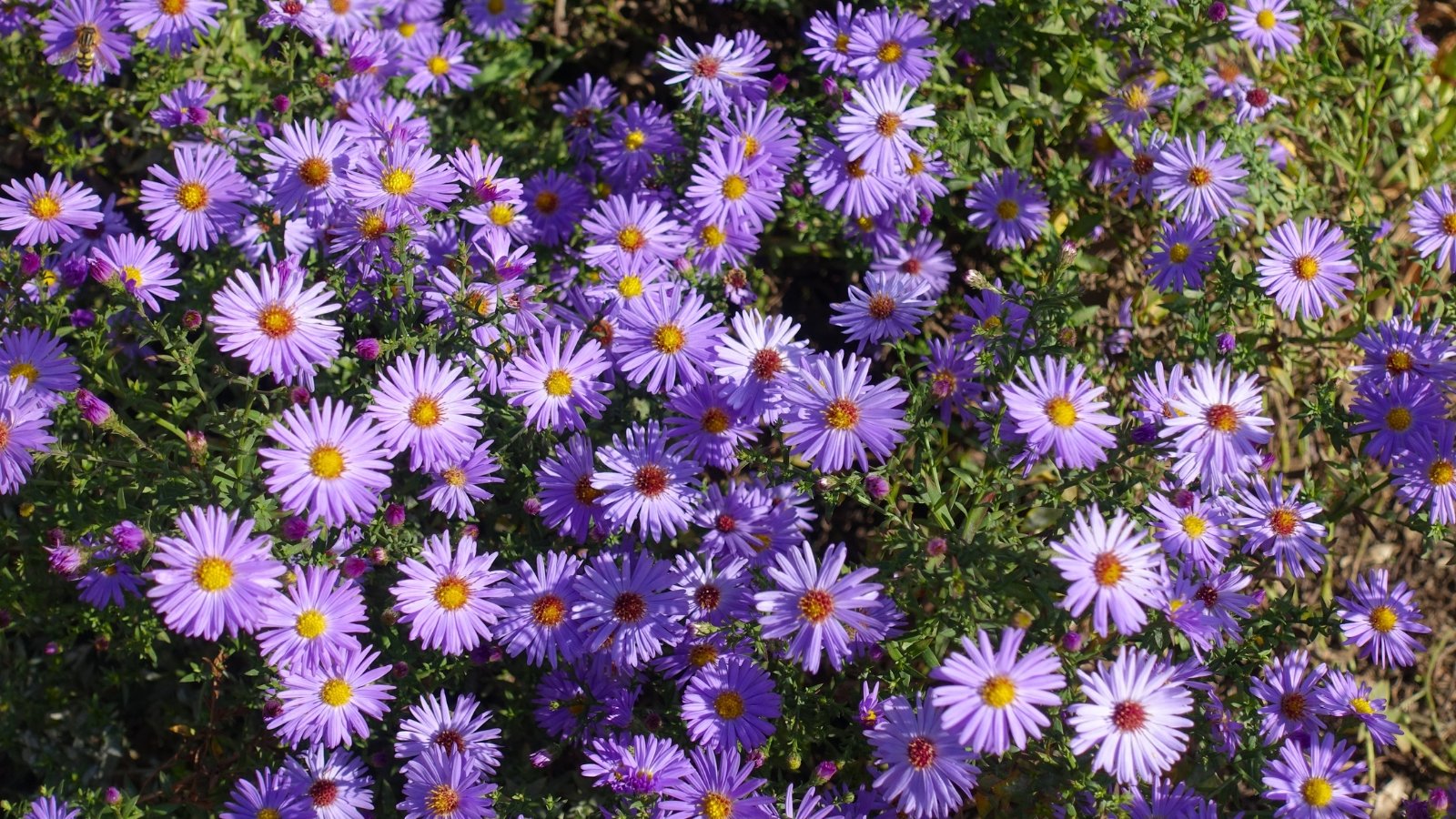

We should always begin with fall’s main flower: the aster. Native to North America, these stars of autumn have deep blue-purple ray flowers with contrasting yellow amenities that draw pollinators. Their late-season blooms carry an infusion of shade.
‘Pink Crush’ is a New England choice (Symphyotrichum novae-angliae) that brings a a lot much less wild look with well-formed branching and blooms. Rose pink ray petals are darker in the direction of the center spherical gold florets. The massive, crowded blossoms cowl the darkish inexperienced leaves early to mid-fall. Stems attain as a lot as two toes tall with a well-rounded conduct.
‘Snow Flurry’ (S. ericoides) is a heath aster that varieties a sexy mounding groundcover. The low kind reaches solely eight inches extreme nevertheless spreads 4 toes intensive. A blanket of petite white flowers obscures foliage in September and October. These are disease-resistant and tolerate dry conditions.
Asters need moist, organically rich soils, whereas some species tolerate lesser soils and dry situations. To forestall foliar illnesses, allow good drainage and a great deal of air circulation.
Solidago
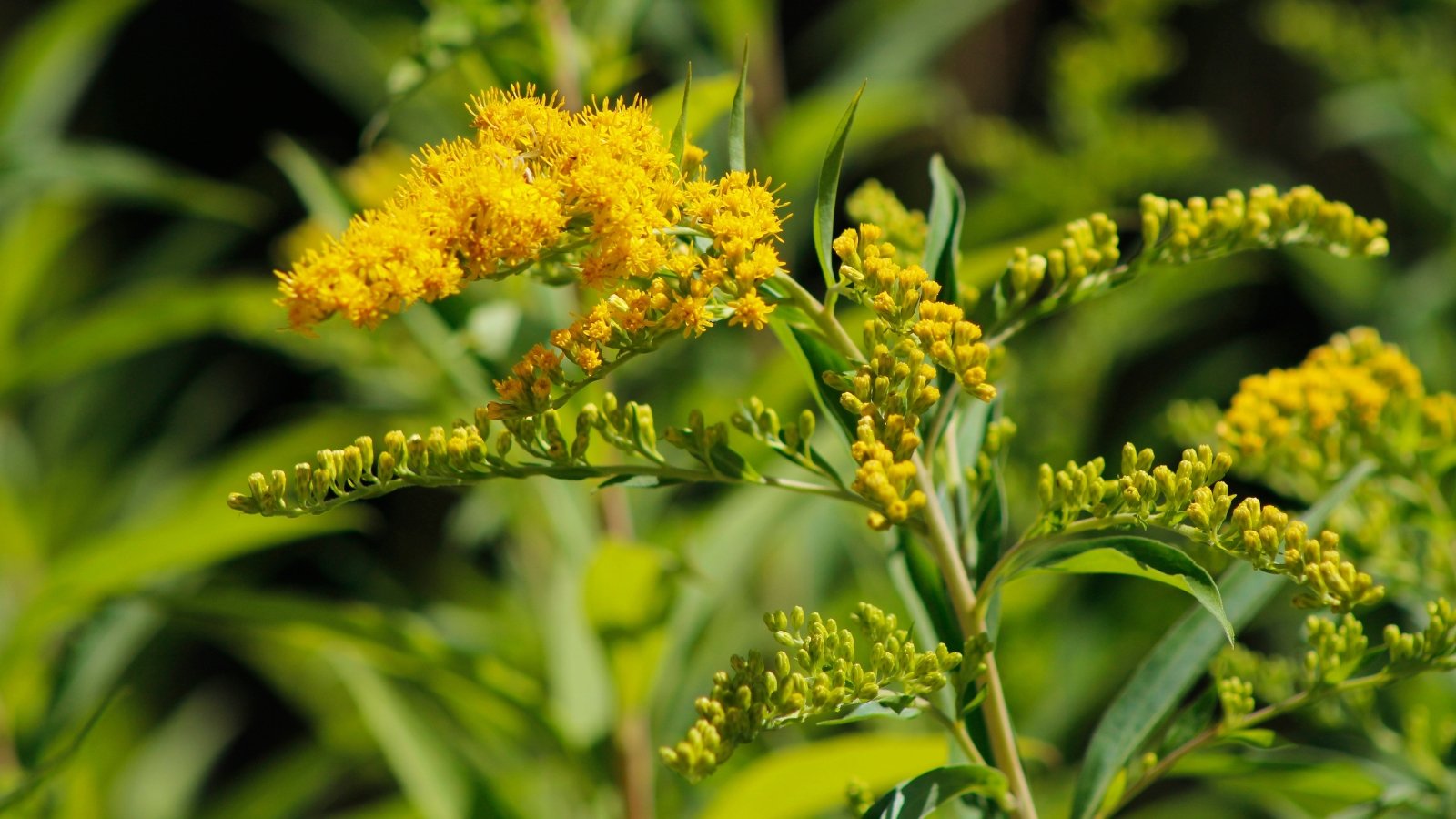

Solidago, or goldenrod, is a wonderful confederate to aster. They operate spires of golden yellow all by way of the good and comfy season. Most solidago are native to North America and notorious for his or her ability to unfold readily. To keep up them in bounds, go for a well-behaved choice.
Non-spreaders embrace ‘Fireworks’ and ‘Youngster Photo voltaic.’ These showy dwarf goldenrods are stout and ornamental with prolific arching spires. Completely different species must be planted in areas the place their unfold isn’t a difficulty.
To delay flowering, deadhead spent blooms, leaving some to supply seeds for the birds to benefit from. Solidago’s easy improvement is partly due to its tolerance of poor soils, extreme heat, and humidity.
Black-Eyed Susan
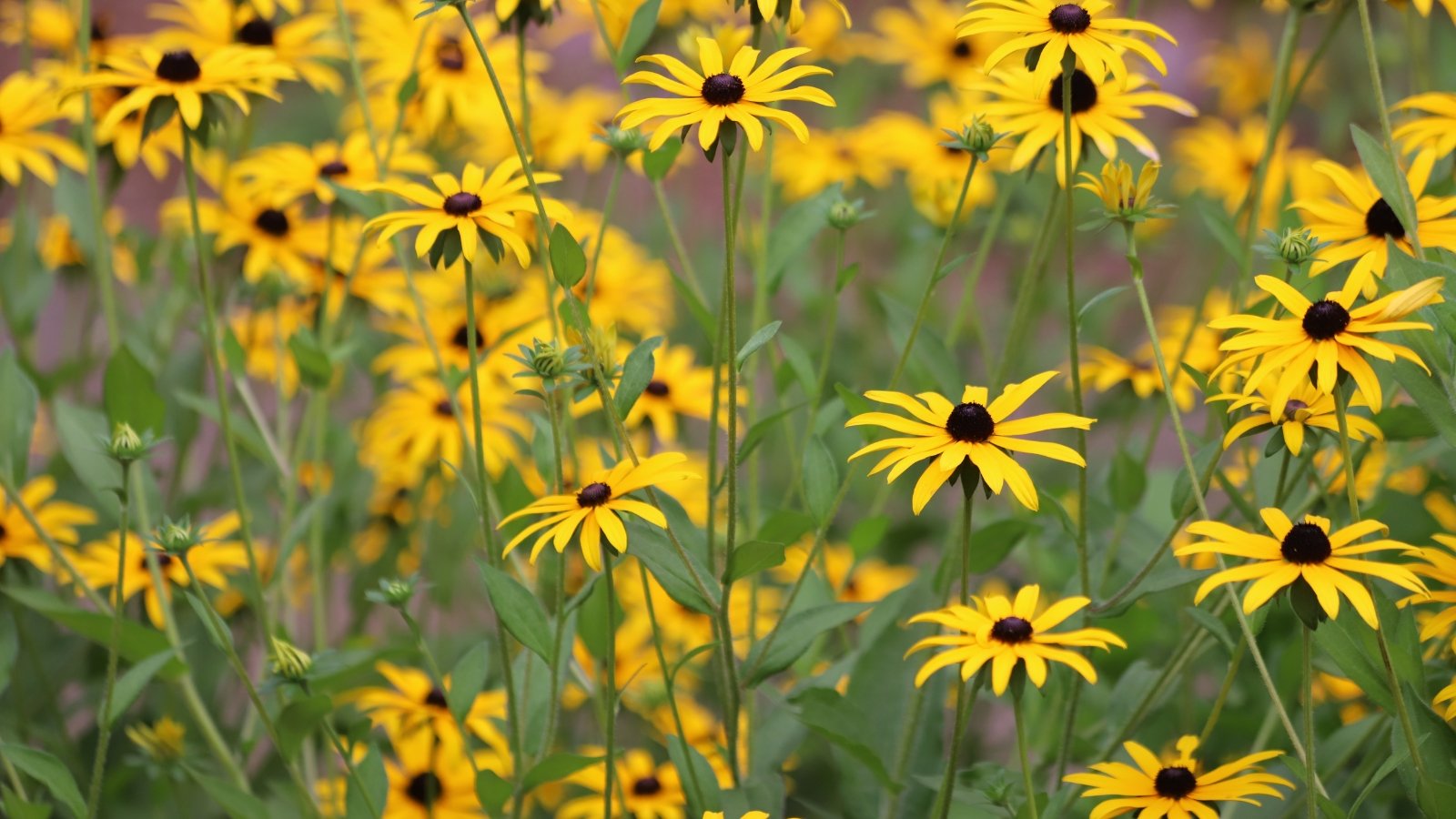

Black-eyed Susan blooms ceaselessly by the use of frost with golden ray flowers with chocolate button amenities. Its shiny yellow faces are cheerful in a gaggle.
The long-blooming perennial is native to elements of the South, Central, and Western United States. It grows naturally in meadows and prairies and adapts to quite a few conditions, along with heat, humidity, and drought.
‘American Gold Rush’ is a compact choice with shiny gold blossoms that crowd two-foot stems. Its smaller foliage is furry and resists leaf spot.
Rudbeckia is easy-care; it doesn’t even require chopping once more at dormancy, as its gap stems swimsuit pollinator overwintering. Persisting seeds current meals for foraging birds.
Mexican Bush Sage
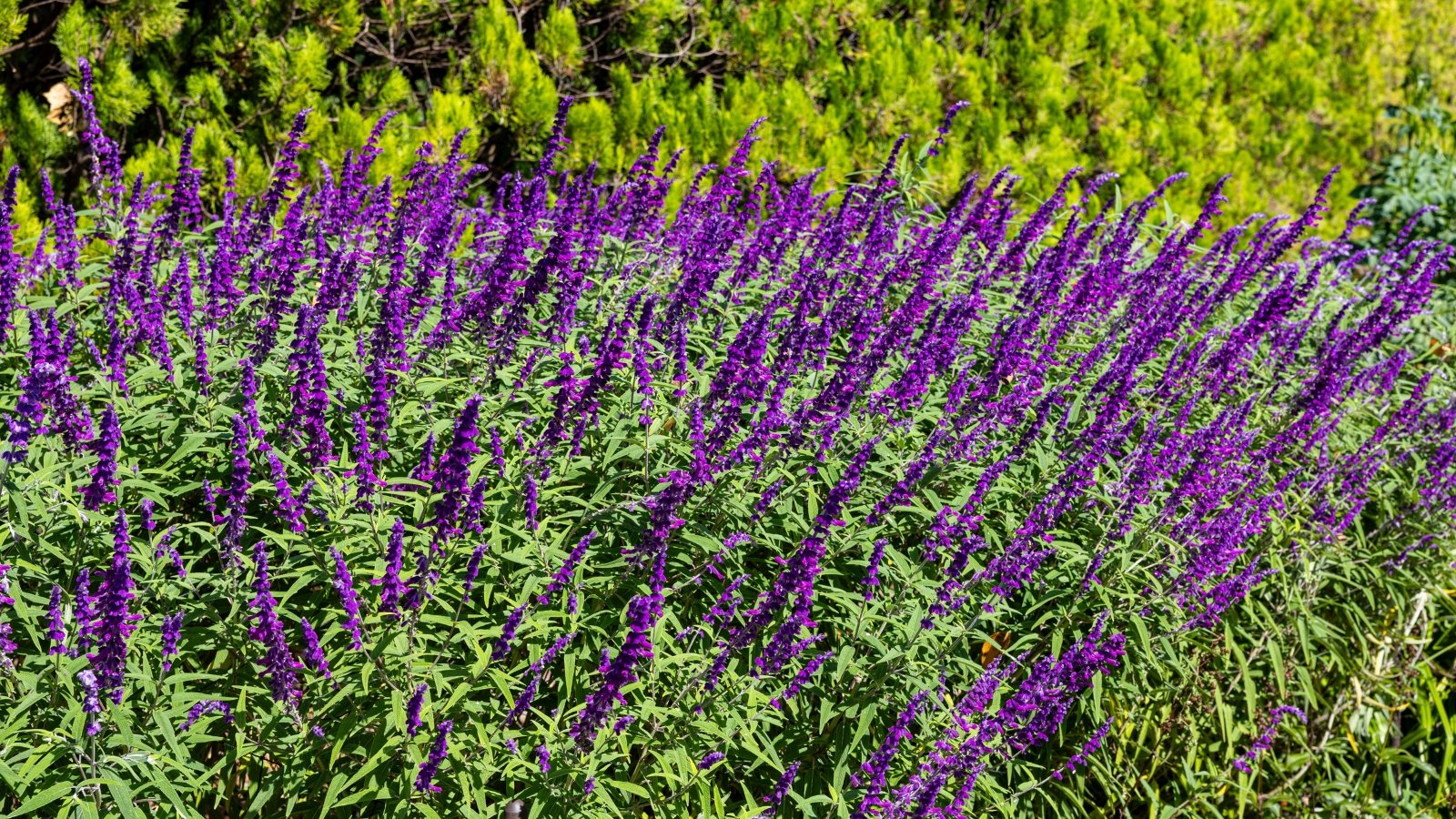

Mexican bush sage is a showy perennial with velvety purple and white bicolor blooms that begin in late summer time season and delay into fall. The colorful, tubular flowers are fairly a number of on prolonged spikes and enchantment to hummingbirds and bees. Textured foliage is silvery gray and aromatic.
Salvia leucantha blooms profusely on barely arching stems. Cultivars embrace ‘Danielle’s Dream’ in lilac pink and white and ‘Santa Barbara’ with a sexy, compact conduct. ‘Midnight’ boasts saturated royal purple spikes.
Mexican bush sage thrives in scorching, dry conditions. It’s a waterwise different with low maintenance requirements. Current well-draining soil and allow them to dry barely between waterings.
Switchgrass
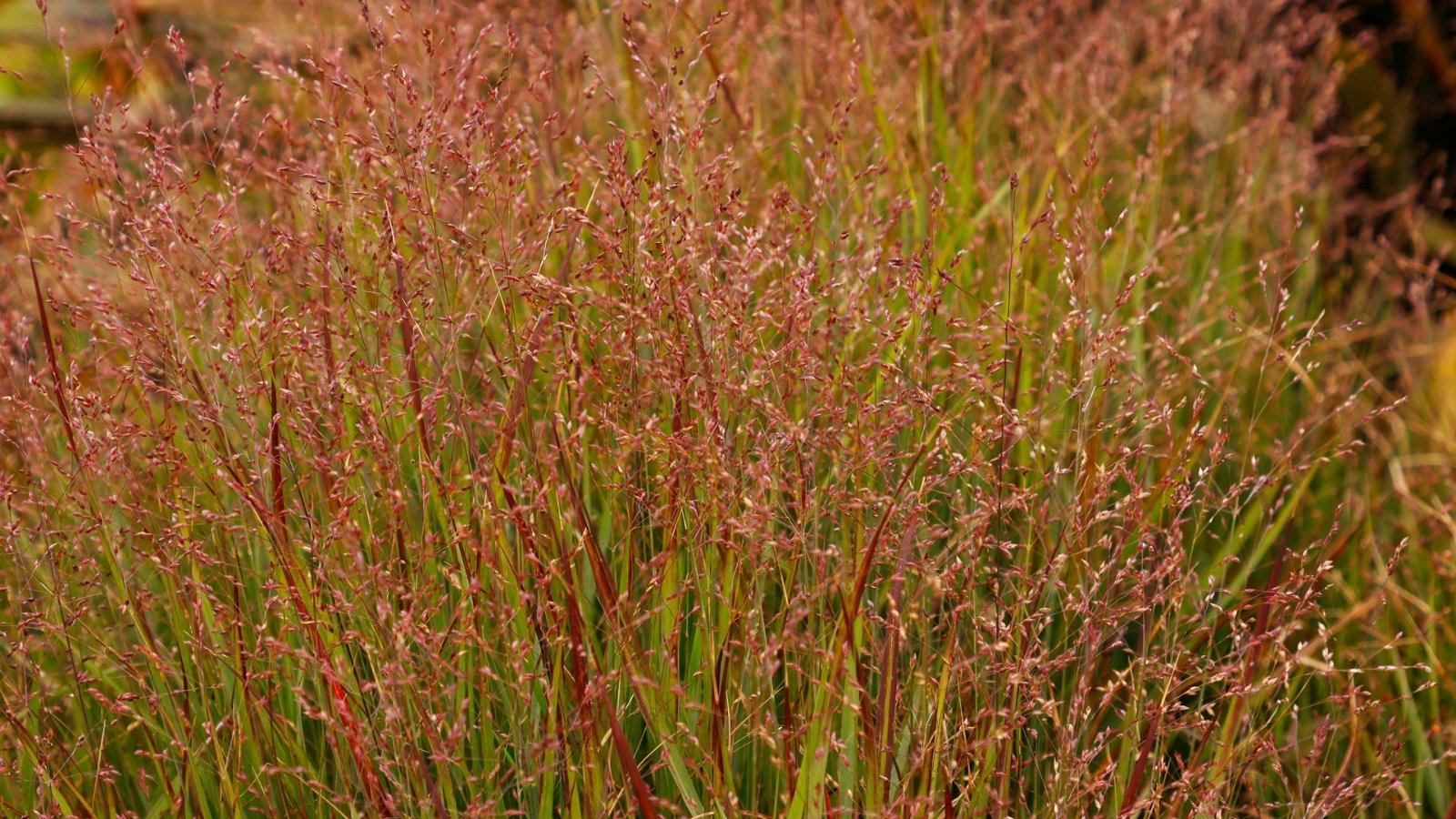

Switchgrass and completely different ornamental grasses add swish movement and texture, even throughout the quiet winter panorama. Maintain them intact until early spring to learn from the dried plumes and blades. The seedheads current meals for birds and small mammals and leafy shelter alternate options.
This species is native North American prairie grass, and grows all through soil varieties, moisture ranges, and light-weight conditions. ‘Northwind’ could be very ornamental and varieties an upright column for vertical curiosity. ‘Cheyenne Sky’ begins blue-green and transitions to wine purple in early summer time season, with plumes to match.
Switchgrass is sturdy, preferring lean soils to overly rich ones. It grows in moist and dry situations and tolerates occasional flooding.
Japanese Anemone
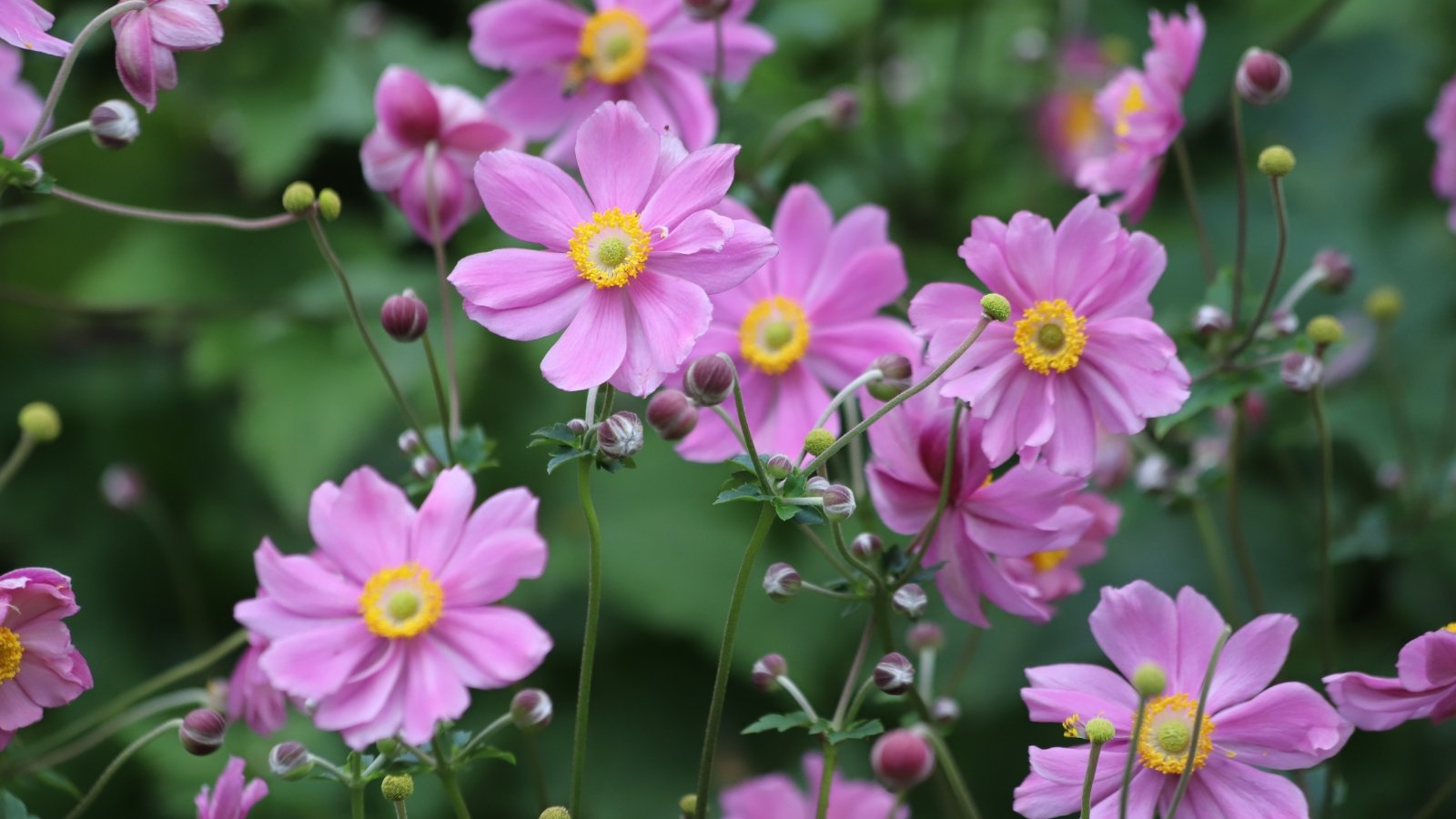

Fall-blooming perennial anemones shine with showy buttercup blooms on tall stems. The clump-forming perennials produce ethereal clusters of petals in pinks, purples, whites, and golds to fantastically complement autumnal tones. The tissuey outer petals (sepals) physique a central cluster of tiny florets.
Eriocapitella hupehensis and hybrida are fall-flowering cultivars with single, semi-double, and double blooms. Darkish inexperienced, ferny foliage helps sprays of wanding buds.
‘Honorine Jobert’ is an earlier yard hybrid from France and a favorite since 1858. Broad, shiny white petals embody golden stamens with a chartreuse eye. The buds preserve pink brushes sooner than opening to semi-double blossoms with barely ruffled petals. ‘Honorine’ flowers for as a lot as two months.
It’s no shock this showy fall choice is a Perennial Plant Affiliation Perennial of the Yr and Royal Horticultural Society Award of Yard Benefit recipient,
‘September Enchantment’ is one different RHS winner with basically probably the most delicate shade of silvery pink two-to-three-inch blossoms. Each flower holds six to 9 petals with darker pink reverses. Buds are darkish rose and open to reveal the blushing inside.
Agastache
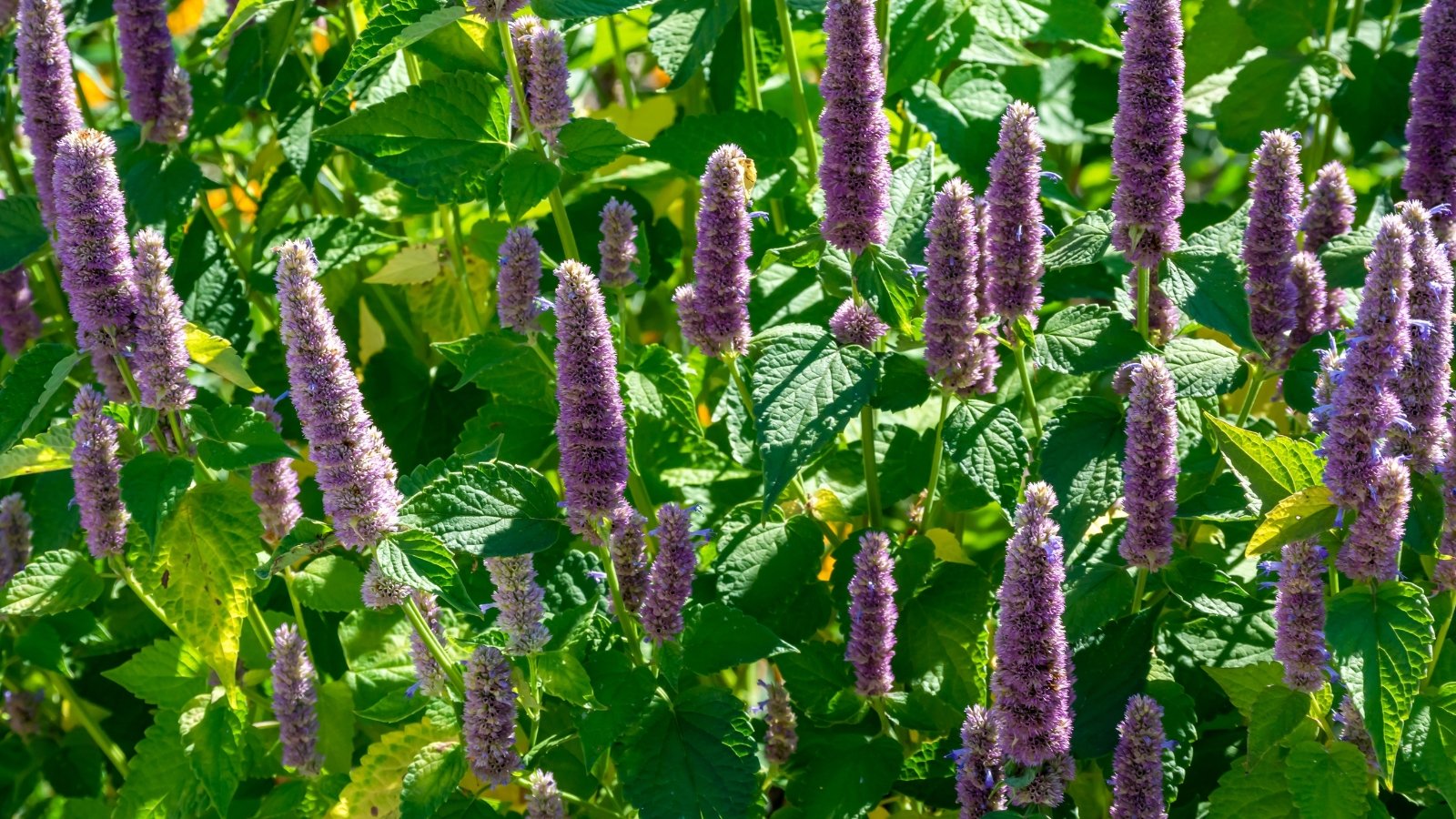

Anise hyssop is an earlier yard favorite with purple-blue tubular blooms lining upright stems. Blooming profusely until frost, they’re a rich nectar provide for bees, butterflies, and hummingbirds. Gray-green leaves are herby and aromatic.
Agastache ‘Queen Nectarine’ is part of the Meant to BeeⓇ assortment, chosen for improved effectivity with taller crops, denser blooming, and elevated hardiness. With ‘Queen Nectarine,’ peach blooms cowl loads of the total, leafy foliage. Mauve calyxes persist for extended shade.
This rugged perennial thrives in various soil varieties with good drainage. Deadhead spent blooms to benefit from late-season flowering.
Hardy Cyclamen
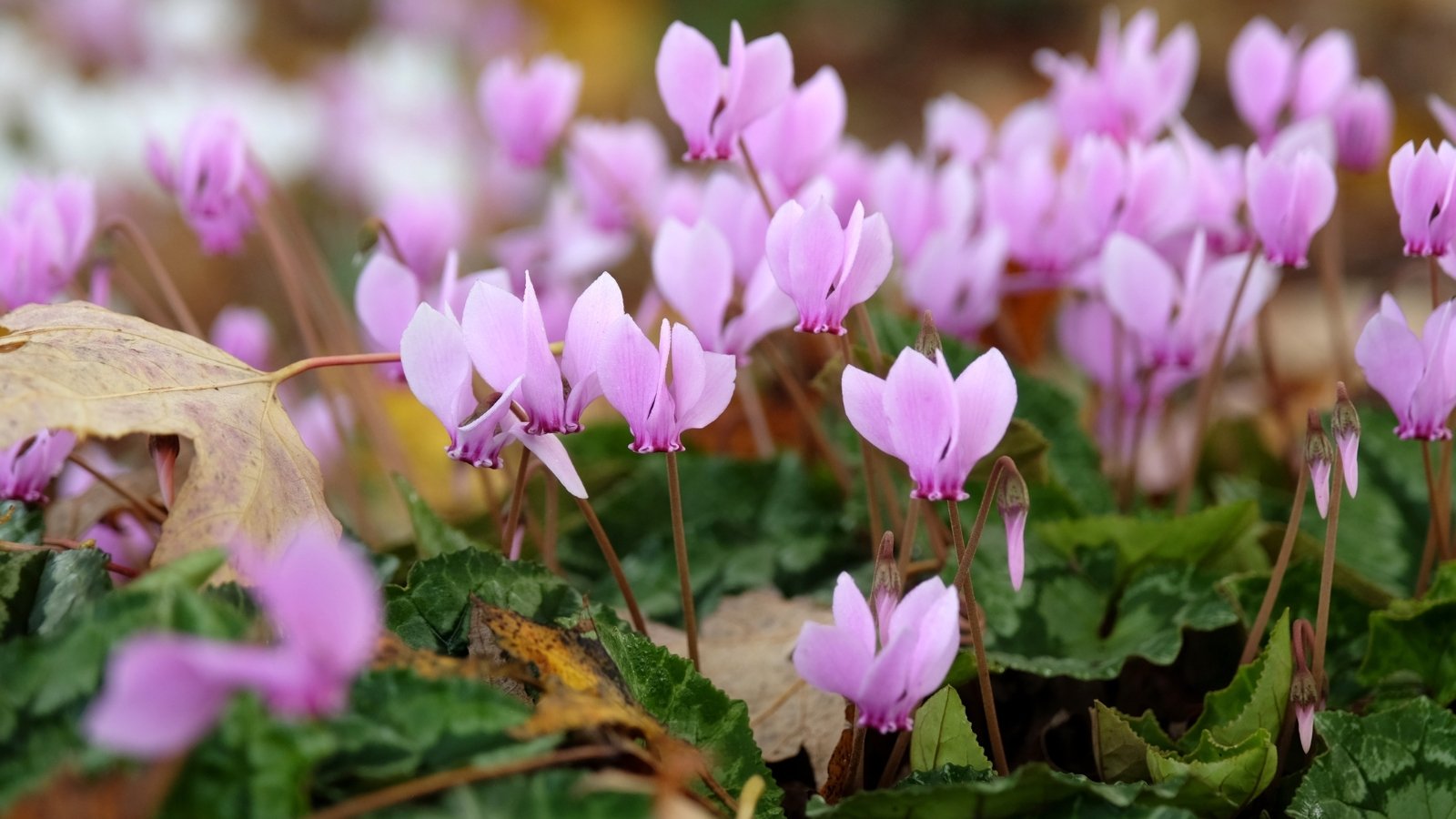

C. hederifolium (hardy or ivy-leaved cyclamen) is a reliable fall-bloomer and underutilized perennial with showy blooms. Hardy cyclamen yields delicate autumnal flowers in white, pink, and purple. Forest inexperienced, ivy-shaped foliage has intricate silver patterning. The species boasts Award of Yard Benefit standing.
‘Album’ is one different award-winning alternative with pure white nodding blooms and blousy, upright petals. These brighten the woodland flooring with a conventional look in opposition to their silvery heart-shaped leaves.
Hardy species unfold by the use of tubers and reseed to kind colonies, nevertheless not aggressively. They tolerate dry shade, a state of affairs completely different crops may uncover tough.
Coreopsis
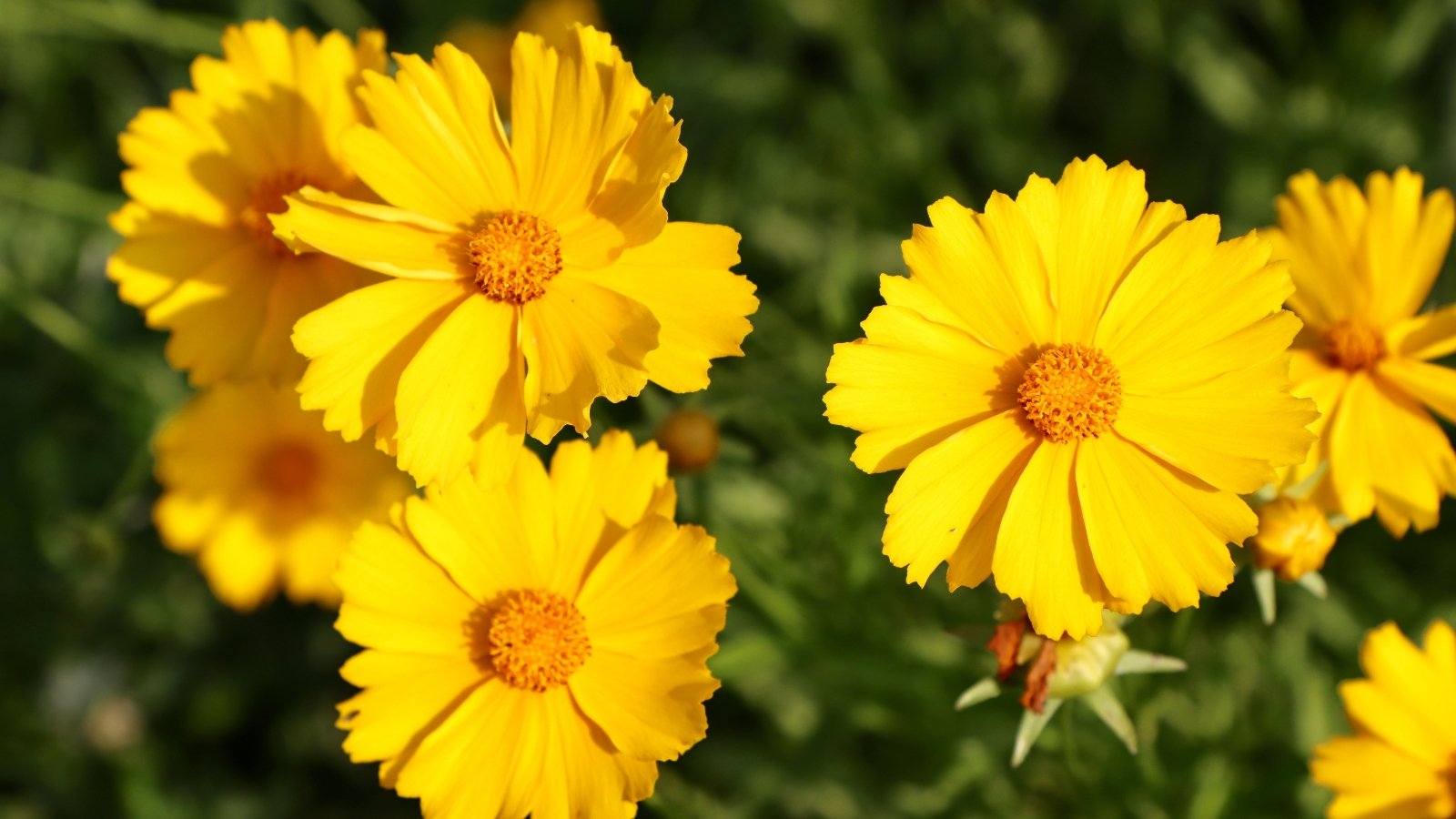

Counting on the vary, coreopsis is one among many remaining flowers to fade on the season’s end. It sweeps the summer time season panorama in sunny yellow drifts and is a favorite nectar and pollen provide for useful bugs. Songbirds forage on the lasting seeds.
Lance-leaved coreopsis (Coreopsis lanceolata) has signature golden ray petals and yellow amenities. C. lanceolata is drought-tolerant. It varieties a pincushion to help the blooms that rise on slender stems.
Plains coreopsis (C. tinctoria) choices yellow daisy petals with deep purple highlights and brown button central discs. Though considered an annual, a single plant may remaining two to some years.
Seek for C. palustris ‘Summer time season Sunshine’ for a relentless, long-blooming effectivity. ‘Summer time season Sunshine’ topped Mt. Cuba Coronary heart trials among the many many genus for reliability, distinctive flowering, and sickness resistance.
Sedum
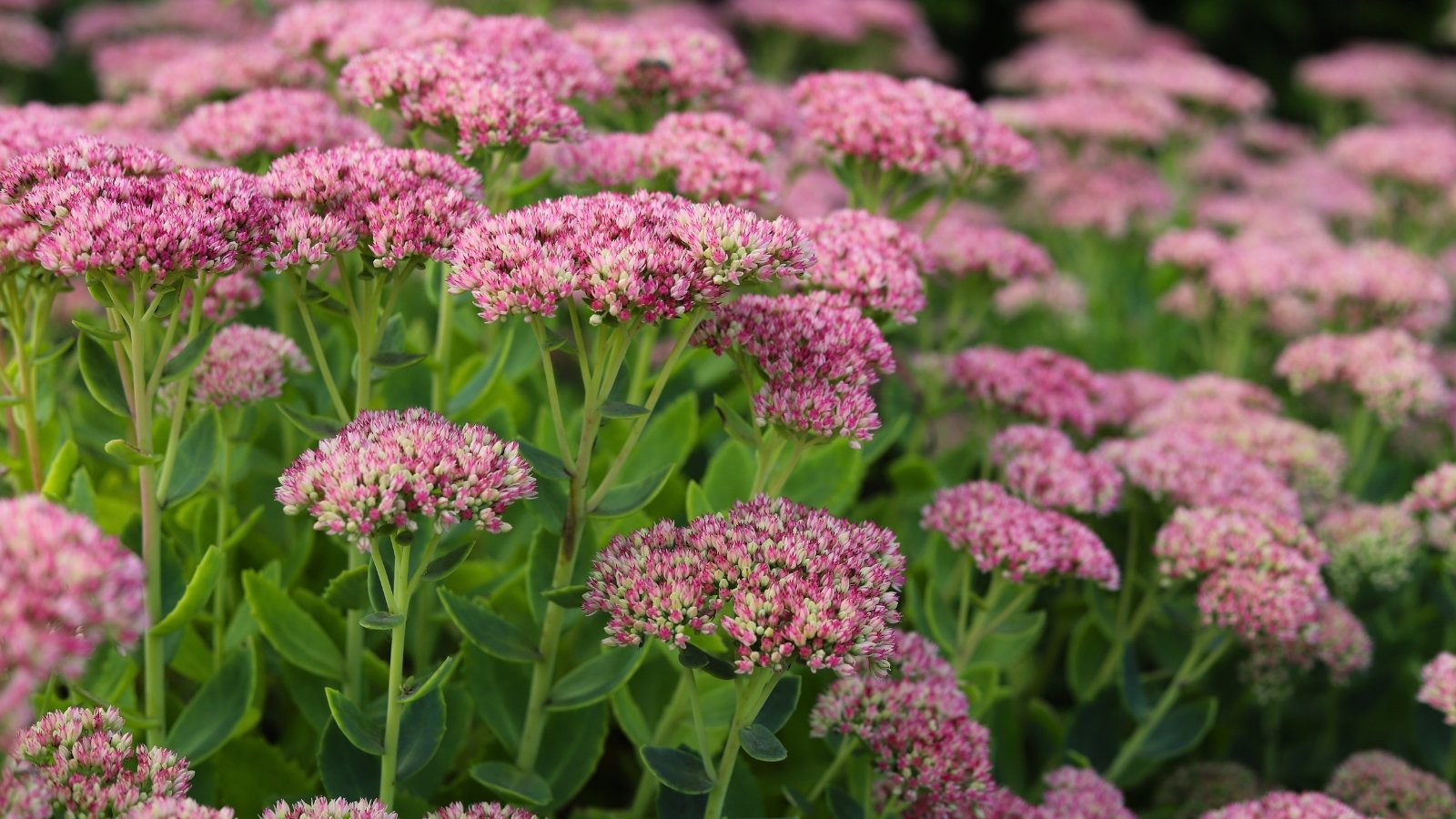

Sedum, or stonecrop, exudes autumnal curiosity from prime to bottom. Late flowers carry shade shifts as they mature amongst distinctive foliage. They provide meals for bees, butterflies, and birds.
The favorite Hylotelophium ‘Autumn Pleasure’ has large clusters of tiny, starry flower heads. They emerge as pink and step-by-step become deep rose-red, fading to copper as they age. Silvery inexperienced, padded leaves are participating from spring by the use of heavy frost.
H. ‘Autumn Fireplace’ is comparable with tighter branching, brighter, rosy pink blooms, and thicker leaves. Stout stems help a substantial amount of flat-topped flower clusters in fall.
For darkish attraction, look to ‘Midnight Velvet’ with a rounded conduct with thick purple leaves. Buds appear in late summer time season in dusky rose, opening to purple blooms. The flowers mature to darkish purple seedheads that persist into the winter for lasting curiosity.
Echinacea
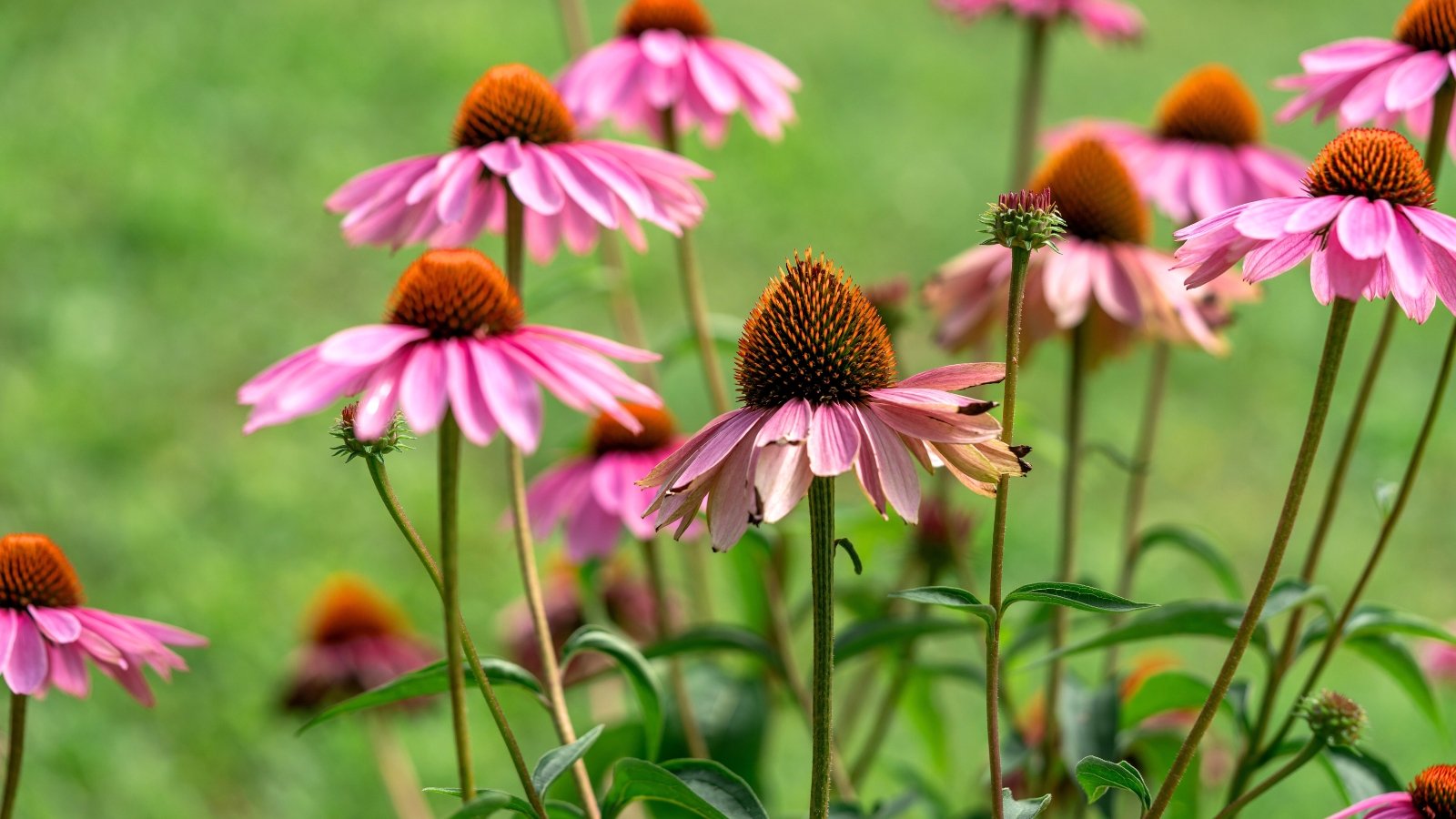

Echinacea is a favorite with cultivars in vibrant purples, pinks, reds, yellows, and oranges. Ray flowers embody a pronounced coronary heart of disc florets.
‘Pica Bella’ locations on an excellent present with a compact, floriferous conduct and massive pollinator draw. The blooms resemble the native species in tender purple with excellent orange discs nevertheless with improved effectivity and kind. ‘Santa Fe’ in vivid coral shades has a tidy kind with vigorous flowering.
Coneflower blooms most intensely in mid-summer. By fall, the fading blooms and dried seed heads carry lasting winter curiosity. As well as they help wildlife.
Helenium
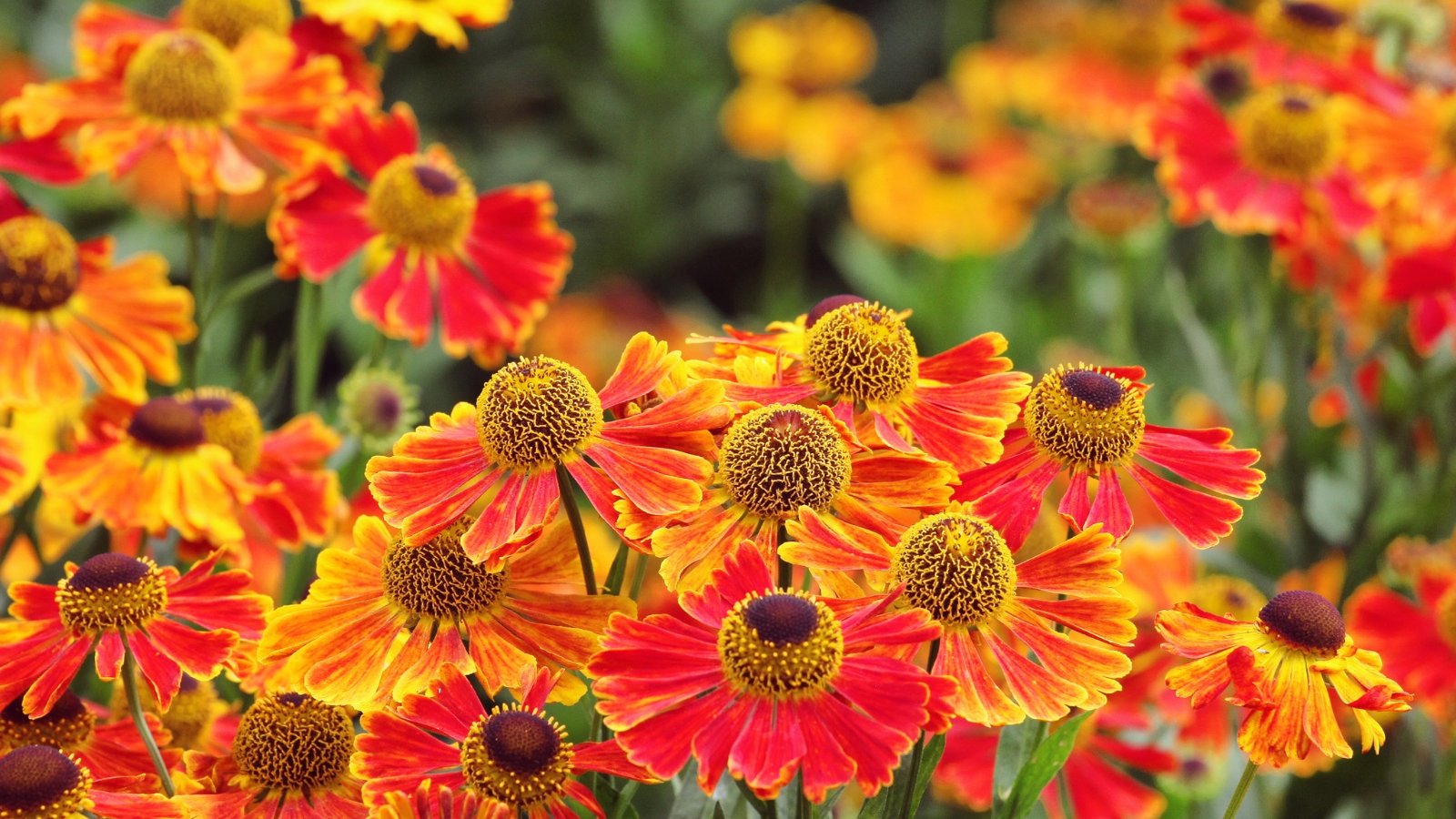

Helenium is one different North American native with daisy-ray petals that twirl spherical a excellent central disc. The extraordinary yellow inflorescences appear until chilly local weather arrives. The widespread title sneezeweed pertains to earlier medicinal makes use of for colds (and by no means allergy-inducing fits).
H. autumnale ‘Helena Purple Shades’ has crimson petals spherical a scarlet coronary heart. ‘Mardi Gras’ is a parade of oranges, yellows, and reds on compact stems. ‘Butterpat’ has buttery yellow petals spherical a yellowy-green disc on four-foot stems. The tall, shiny grower is an Award of Yard Benefit recipient.
Helenium needs a moist site to thrive, with a pure habitat alongside streambanks, ponds, and moist meadows. They tolerate spells of standing water and poor soils.
Gaillardia
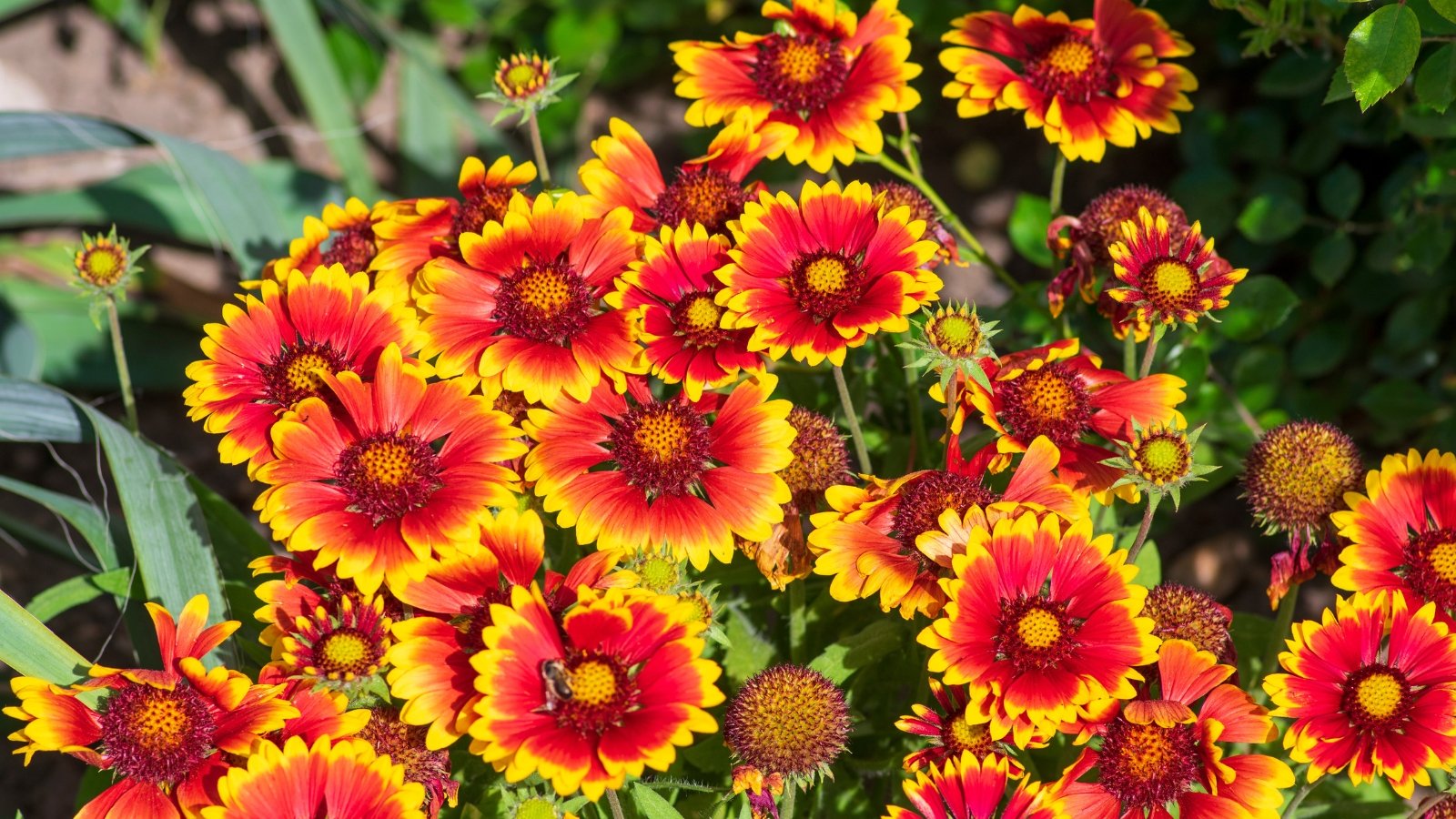

Gaillardia, or blanketflower, brightens in gold, orange, purple, and bi-color daisy rays spherical brown button amenities. The North American wildflower is drought and heat-tolerant and grows in poor, sandy soils.
The All-America Picks winner ‘Arizona Photo voltaic’ has a compact stature with vibrant gold, orange-red, and scarlet flowers. The dwarf growers attain 8-10 inches tall. Gaillardia x grandiflora ‘Arizona Apricot’ produces mellow orange and yellow blooms. ‘Mesa Peach’ has upright blooms with peachy-orange amenities that transition to yellow in a muted daybreak glow.
Blanketflower is a stout species that does best in well-drained soils. For best flowering, current even moisture.
Russian Sage
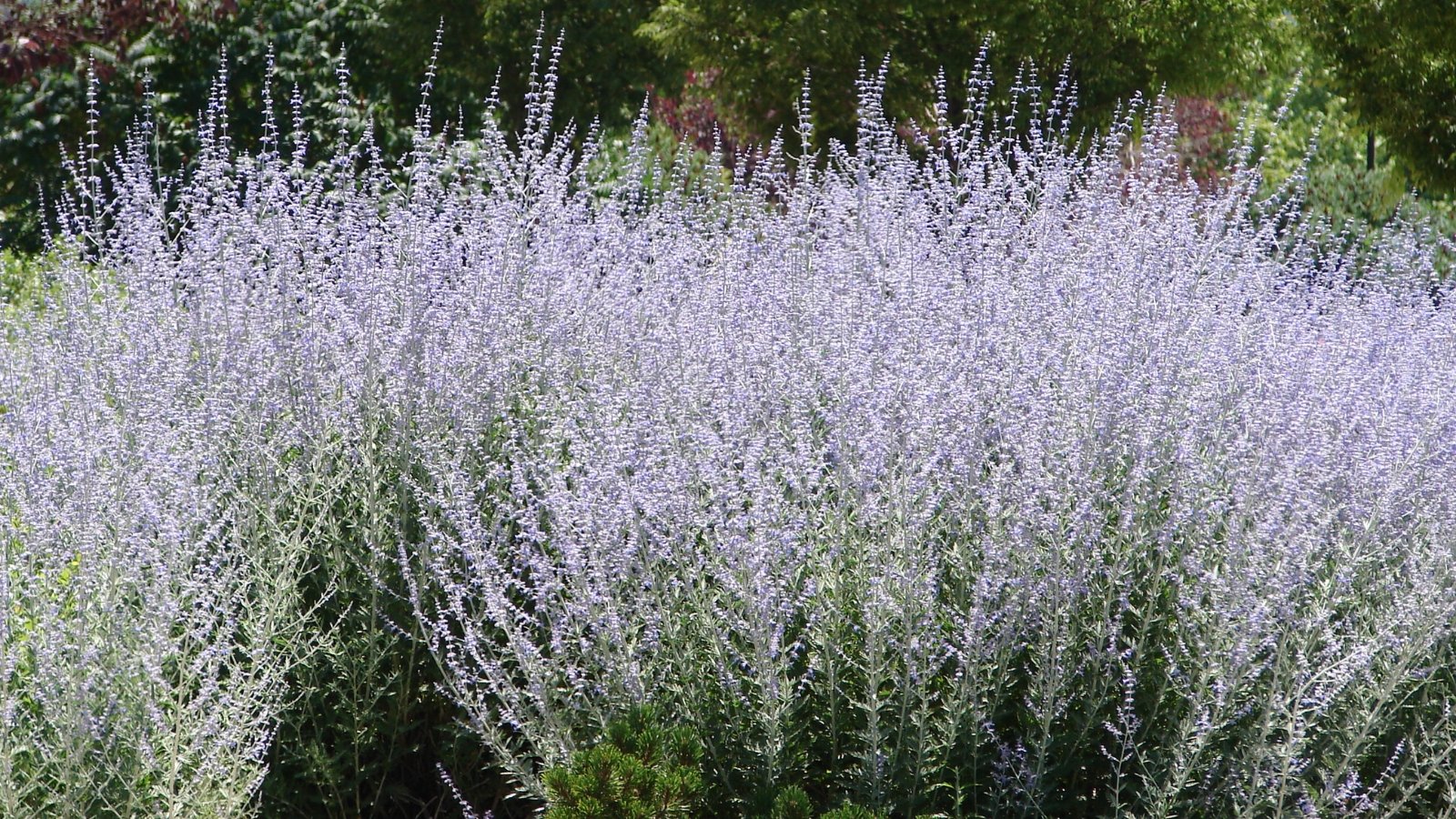

Russian sage is one different showy perennial with silvery stems, gray-green leaves, and sprays of purple-blue flowers that bloom by the use of the autumn. The tubular blooms line tall stems in a cloud among the many many delicate foliage.
Russian sage is a Perennial Plant Affiliation’s Perennial Plant of the Yr winner. It blooms reliably from summer time season until frost all through variable rising zones.
Sickness-resistant, compact varieties like ‘Denim ‘n Lace’ and ‘Crazy Blue’ are sturdy in humid areas. ‘Denim’ is a main performer at Michigan State Faculty trials with fixed vigor. Russian sage performs fantastically in scorching and dry conditions.
Joe Pye Weed
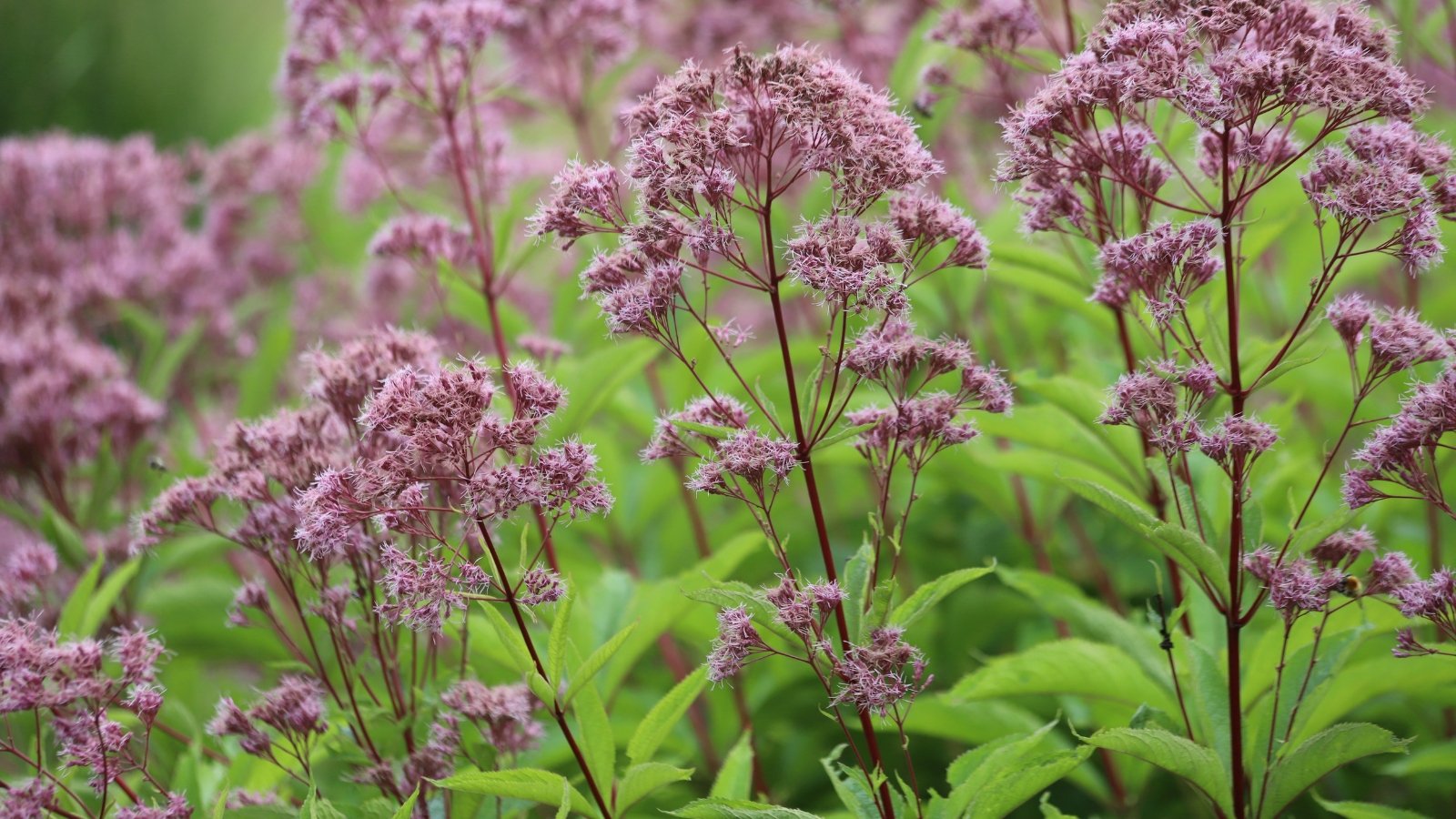

Joe Pye weed is an unfussy native with fall, domed pinky-purple clusters that enchantment to useful bugs. The towering stems lend a naturalized look with coarse, prolonged leaves in deep olive inexperienced with purple leaf nodes. Darkish seed pods remaining properly into winter.
Dwarf cultivars are easier to go well with all through yard scales. ‘Little Joe’ and ‘Youngster Joe’ attain two to 4 toes tall with dense stems and blooms for a pure nevertheless a lot much less wild conduct.
Joe Pye grows in fully completely different soil conditions, along with clay. They do best in rich, moist, well-drained situations.
Chrysanthemum
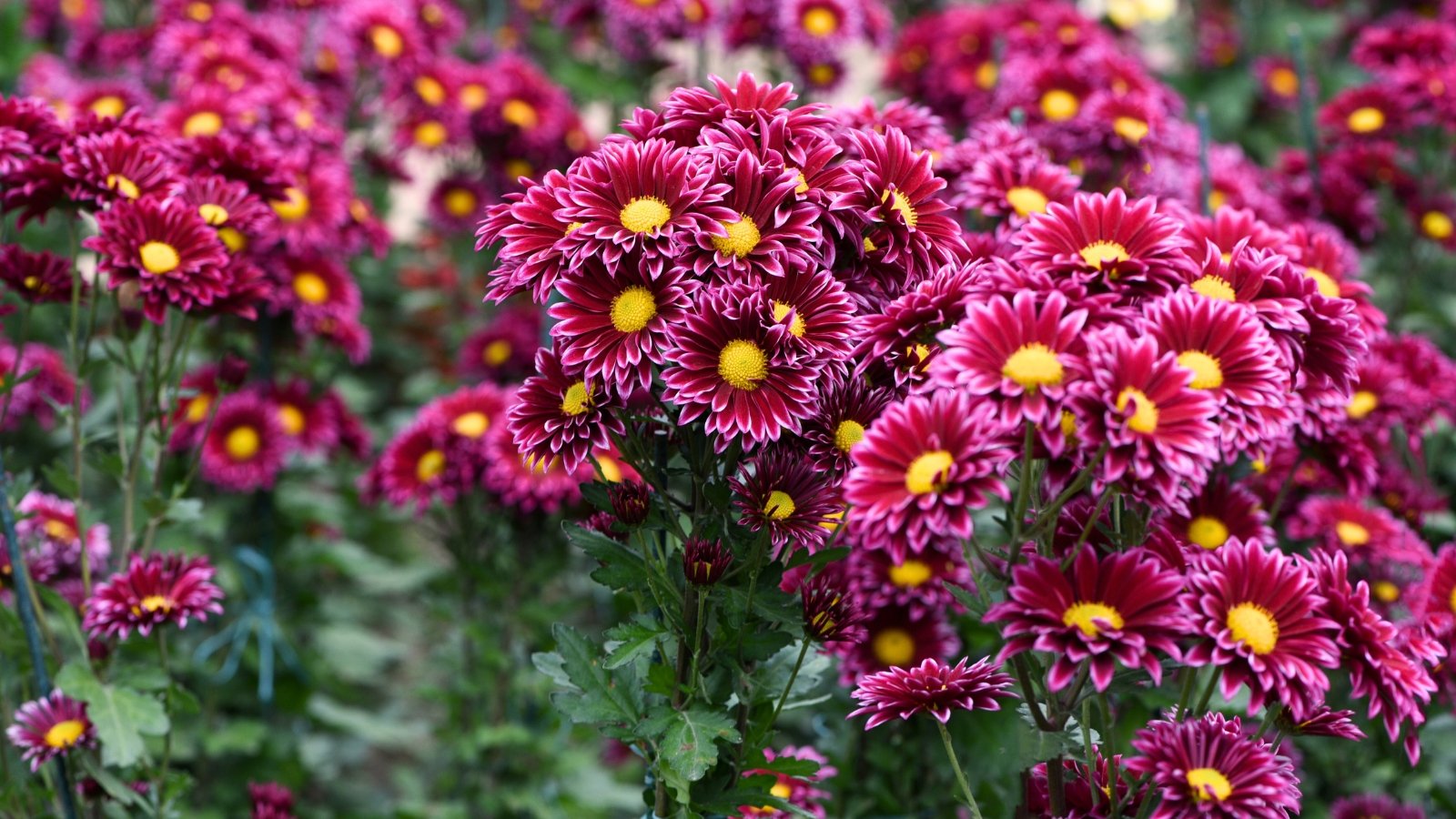

Hardy chrysanthemums produce large shade and full bloom safety as daylength shortens and temperatures cool. Scarlet, gold, orange, pink, or purple flowers cowl darkish inexperienced, lobed leaves. Heirloom varieties carry selection among the many many customary mums we see in fall.
Favorites embrace ‘Ryan’s Pink’ with pale pink flowers and a young conduct. ‘Mrs. Robinson’ is a pincushion of deep purple. ‘Miss Gloria’s Thanksgiving Day’ has rose pink little daisies. ‘Coppersmith’ with daring, bronzy-orange cushions is sweet for latest floral preparations.
Mums are easy-care in ample sunshine and moist soils with good drainage. Go away their crowns intact for winter security in chilly climates.
Hardy Hibiscus
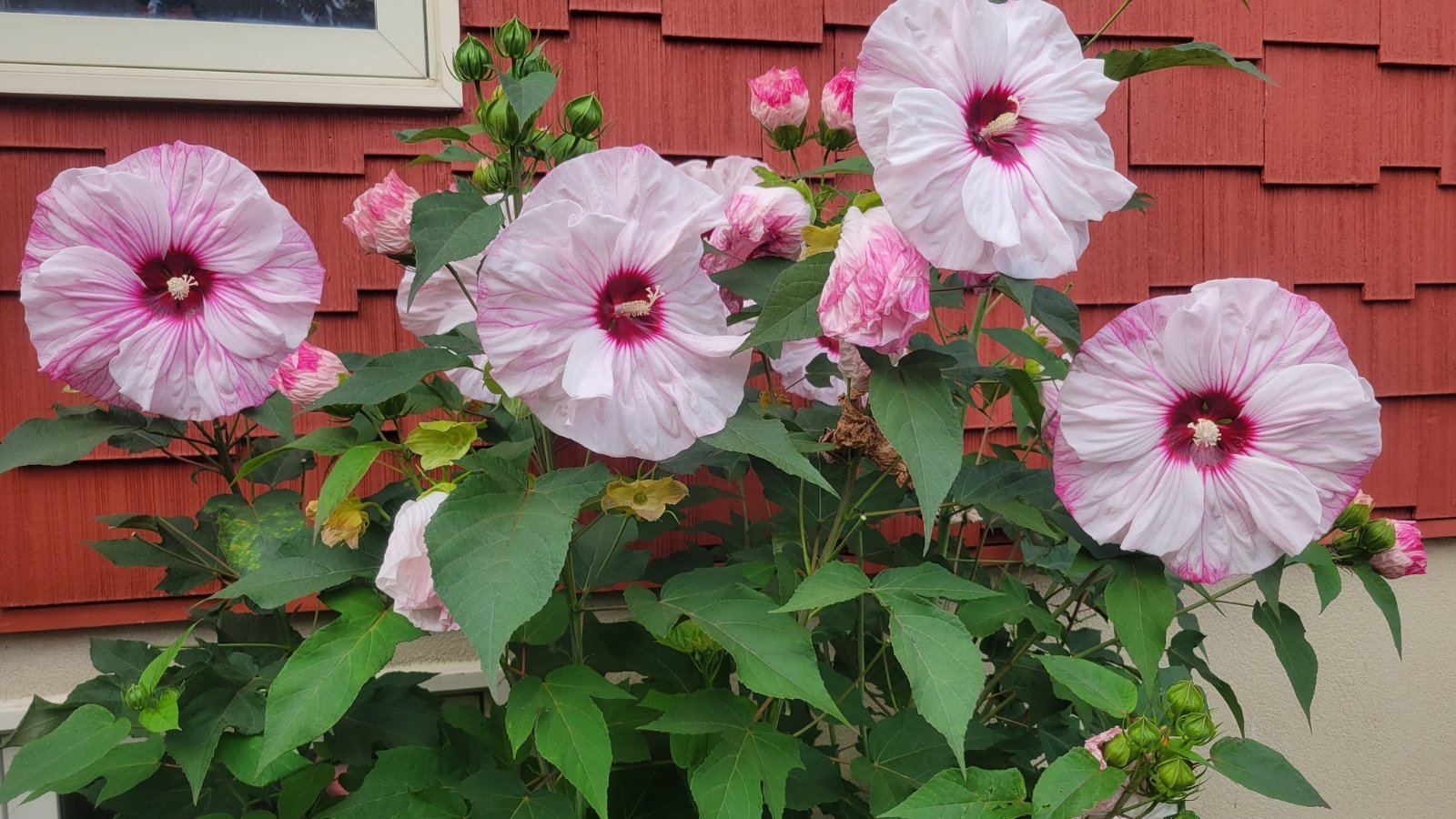

Hardy hibiscus, or Hibiscus ‘Holy Grail,’ has a tropical look with giant disc flowers. Hybrids stem from North American mallows (along with H. moscheutos, H. laevis, and H. coccineus), bred for improved panorama sturdiness and hardiness. The distinctive discs emerge mid-summer and fluctuate from pale pink to deep scarlet.
Hibiscus ‘Holy Grail’ has virtually black foliage and crimson flowers. The massive blooms attain eight to 9 inches all through. For daring drama, this hibiscus shines. ‘Ballet Slippers’ softens the look with ruffly white blooms tinged with blush pink edges. Amenities are deep purple. Sensible inexperienced leaves current a shocking backdrop to the massive discs.
Current fixed, even moisture, as these don’t adapt to prolonged dry spells. Go away rose mallow standing in winter for curiosity with upright branching and perches for wildlife.
Swamp Sunflower
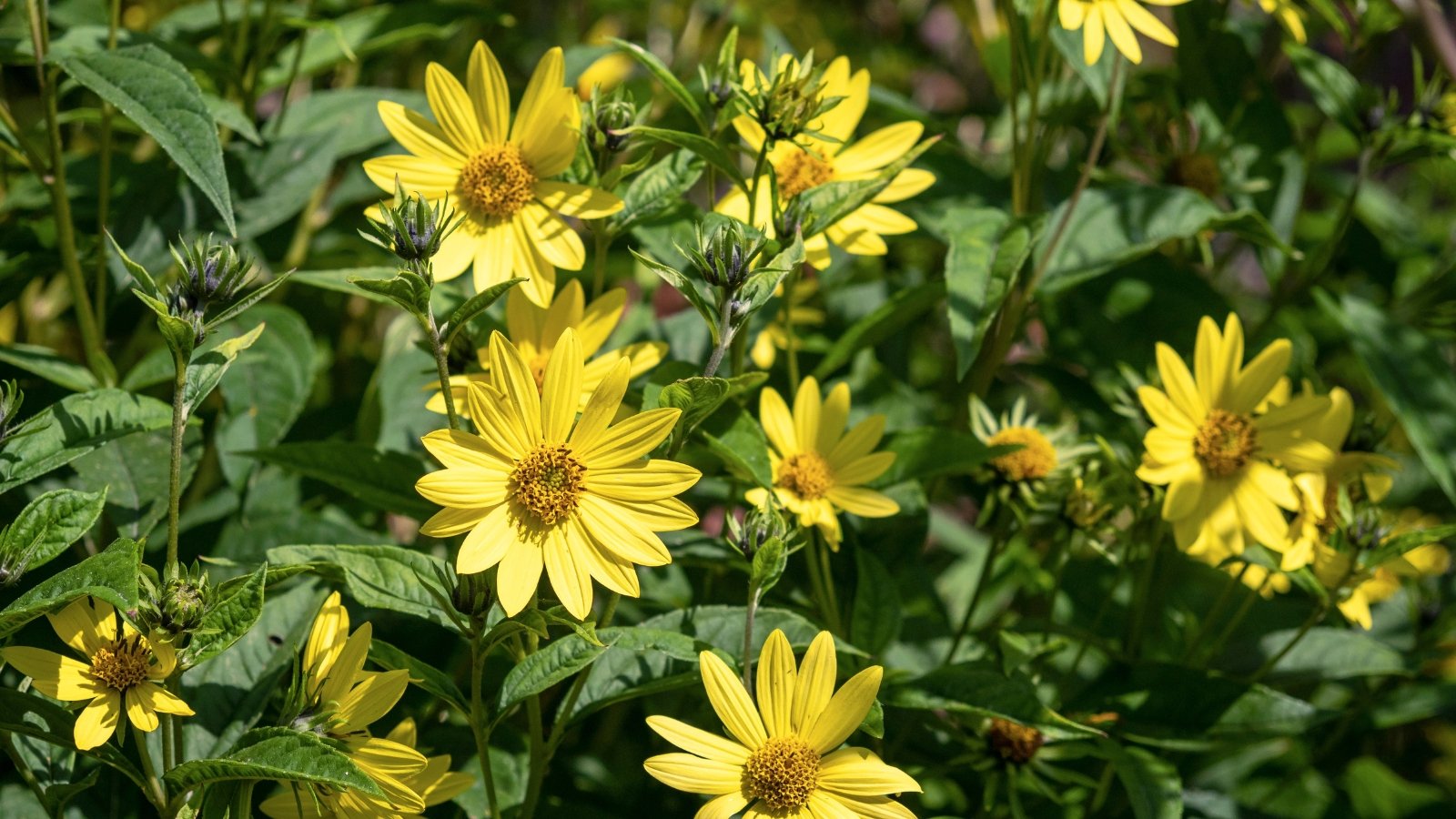

Swamp sunflower is a perennial species with tall, branching stems that preserve clusters of showy yellow ray flowers throughout the fall. They convey a couple of naturalized, wildflower look to the once more of the border in sprays of autumnal gold.
Cultivars in varied heights and habits make perennial sunflowers versatile throughout the panorama. ‘First Gentle’ grows three to 4 toes tall with good branching and a dense kind to help bundles of sunny blooms.
Swamp sunflowers need moist soils and tolerate typically moist situations. They take extreme heat and humidity in stride. Specialised bees and the silvery checkerspot butterfly use these as hosts.
Muhly Grass
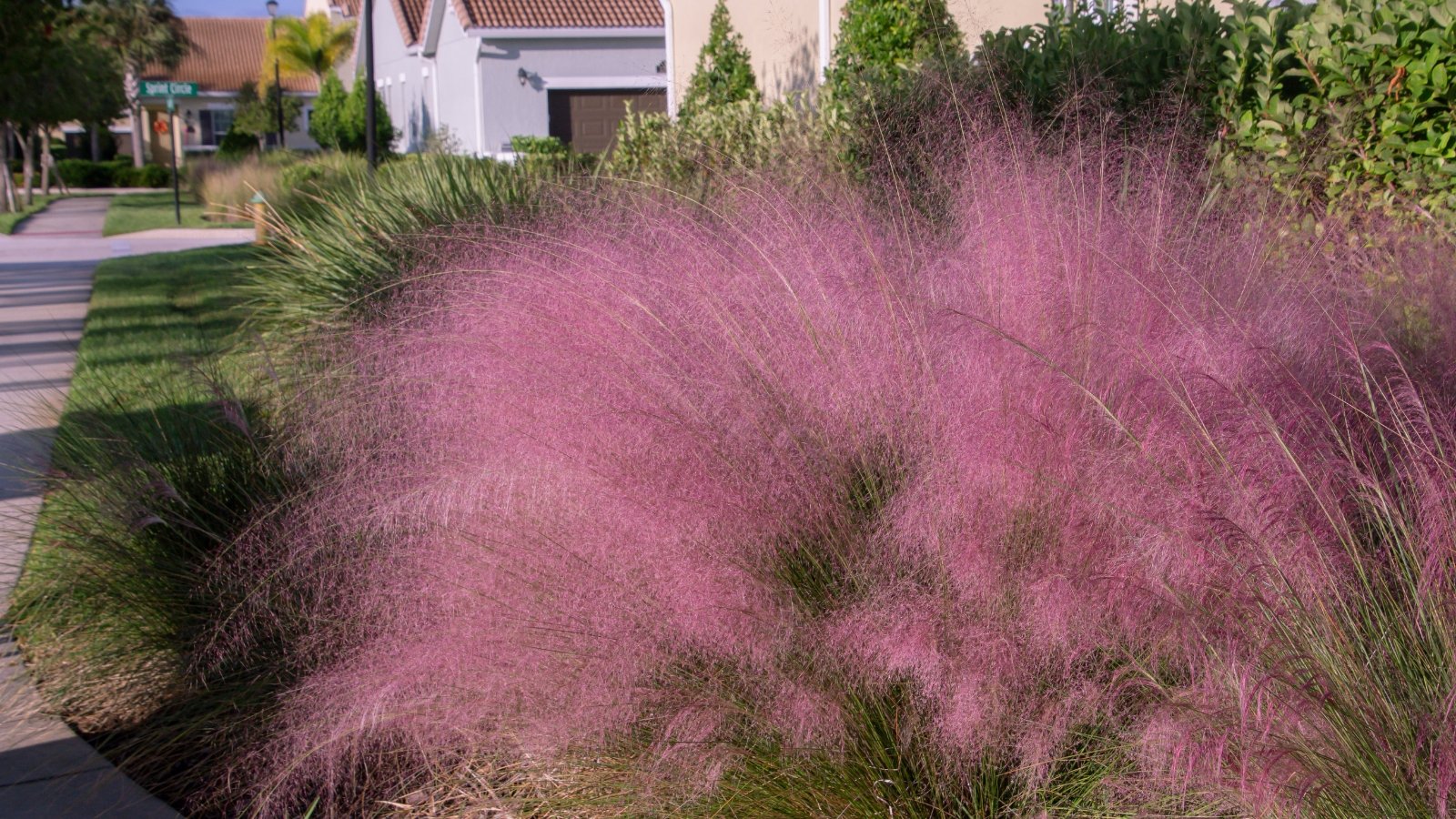

Muhly is an area perennial grass with showy plumes that shock in fall. They create a pinky-red haze spherical fine-bladed foliage. Wiry leaves in deep inexperienced sit quietly until the panicle explosion.
‘White Cloud’ brings an open conduct with dense white plumes. These bloom after pink muhly (the straight species).
Muhly is heat, humidity, drought, and salt-tolerant. It grows in poor soils, along with clay, rocky, and sandy.
[ad_2]
Provide hyperlink
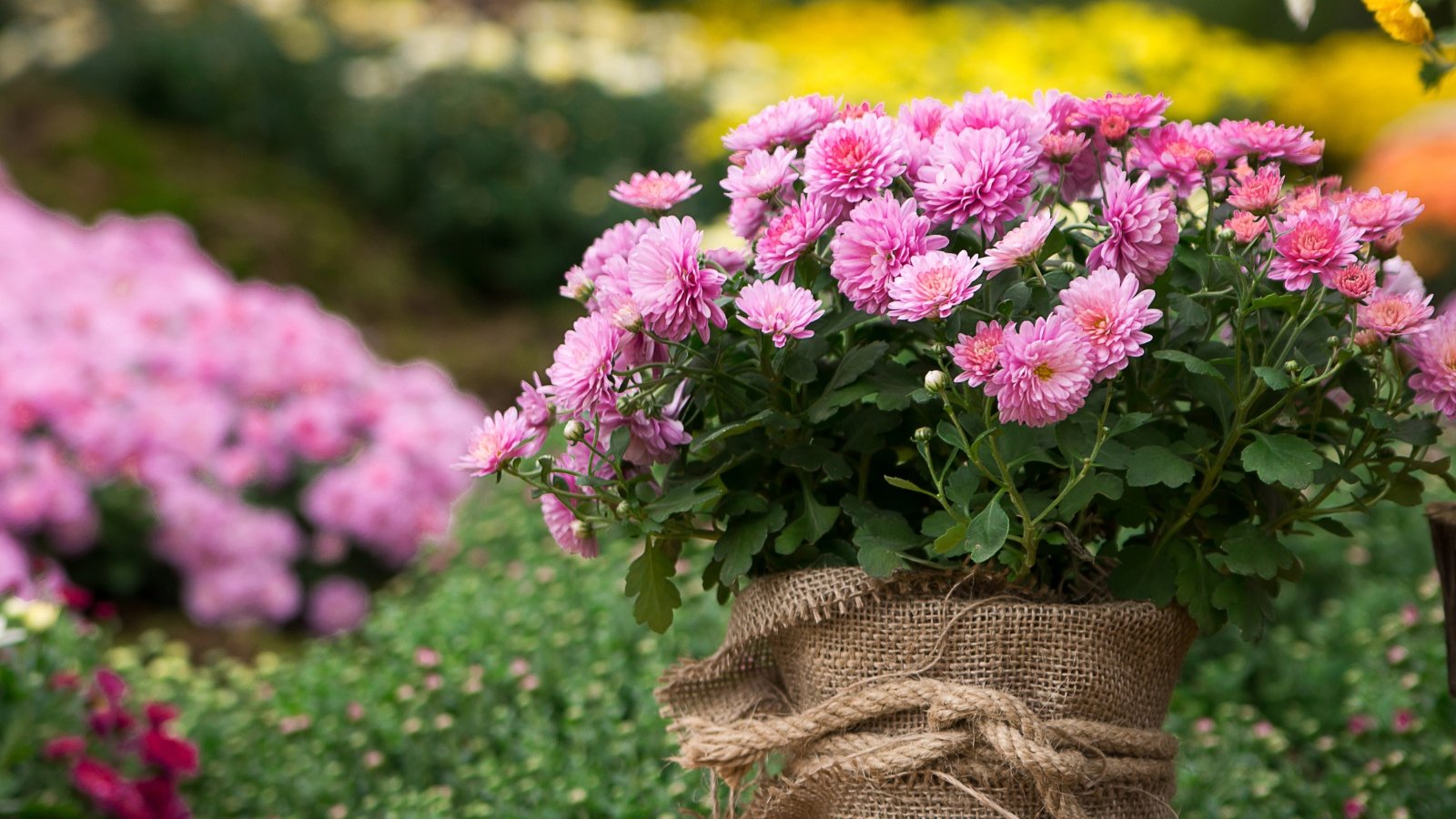
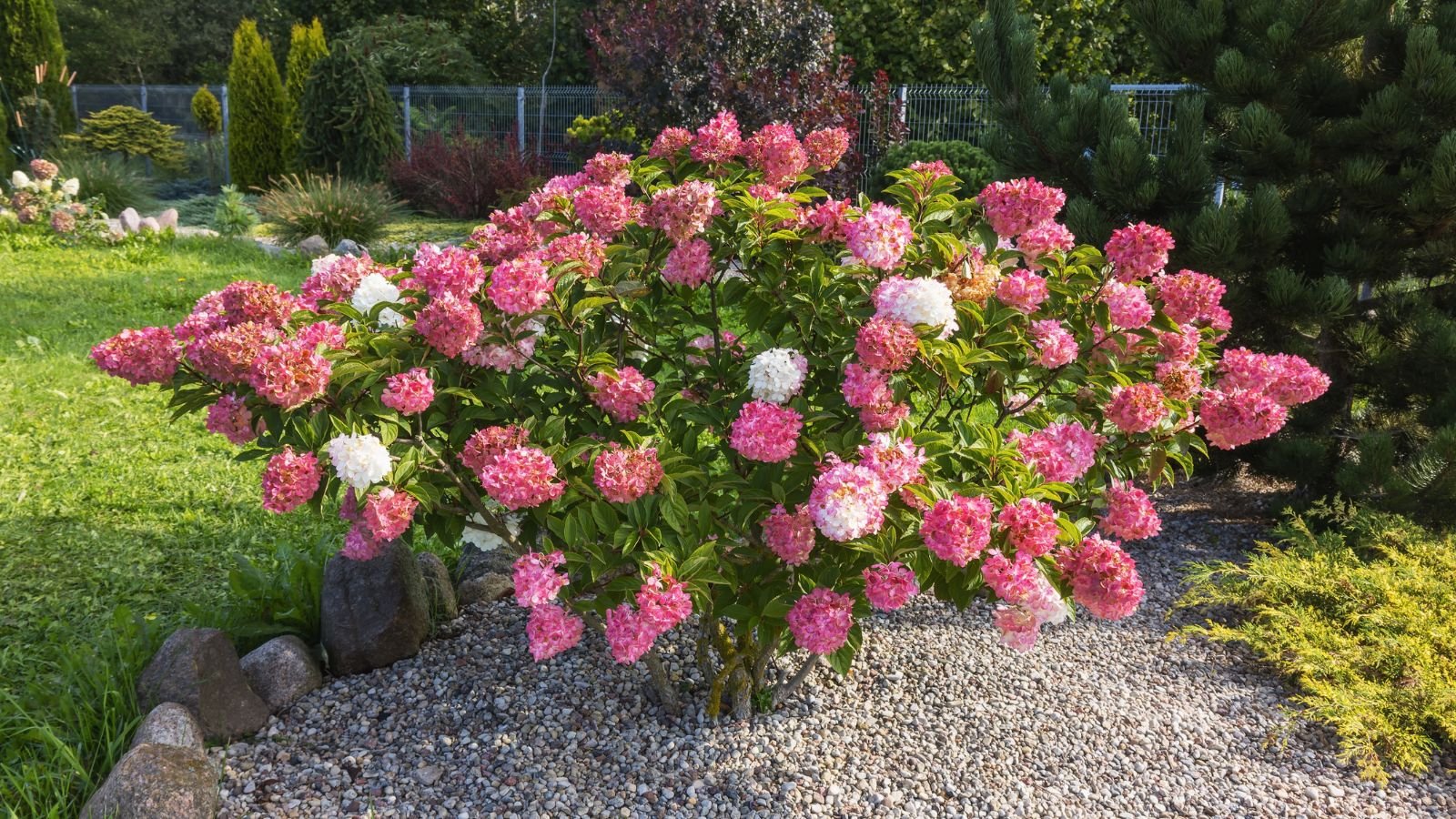
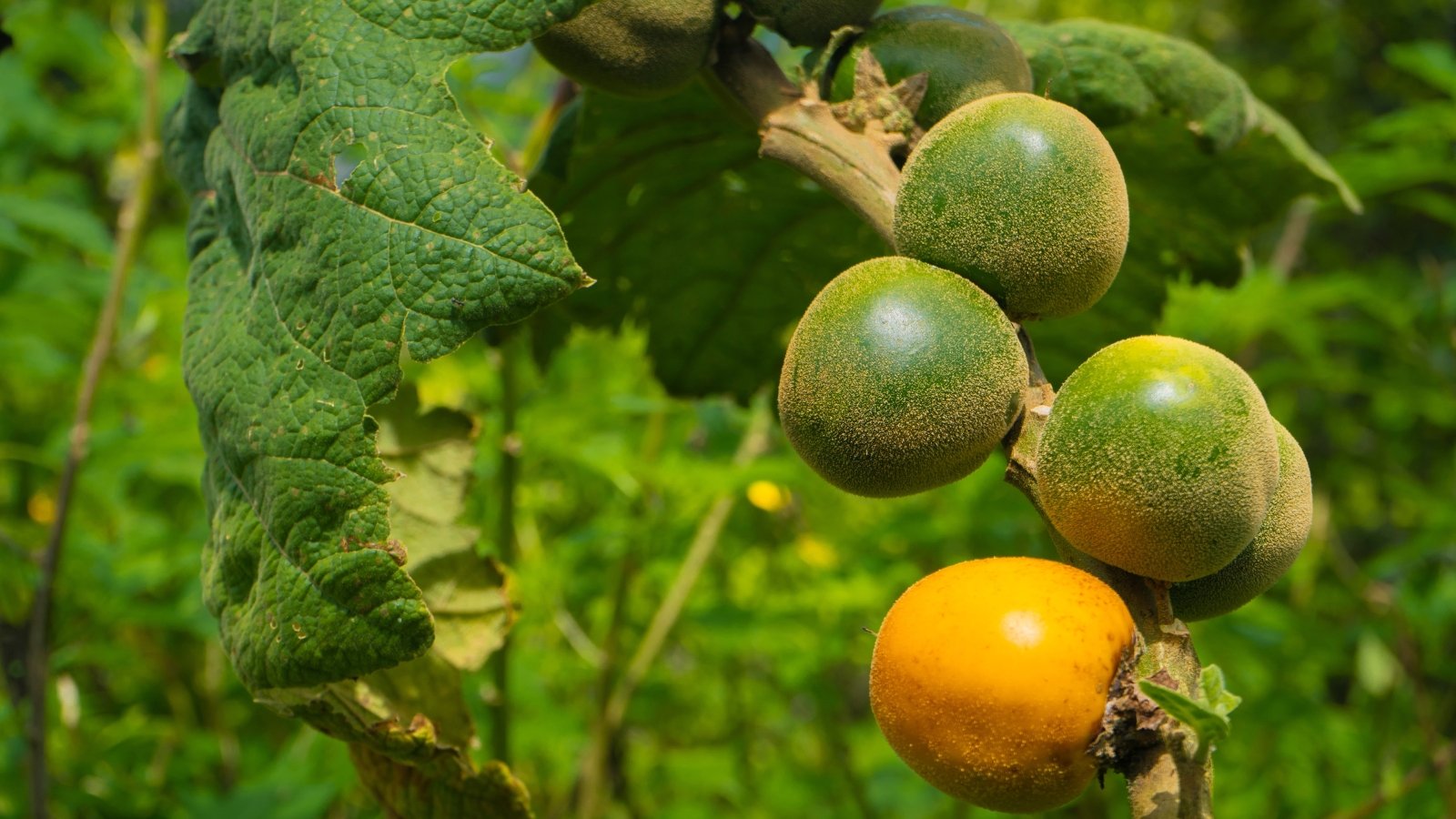
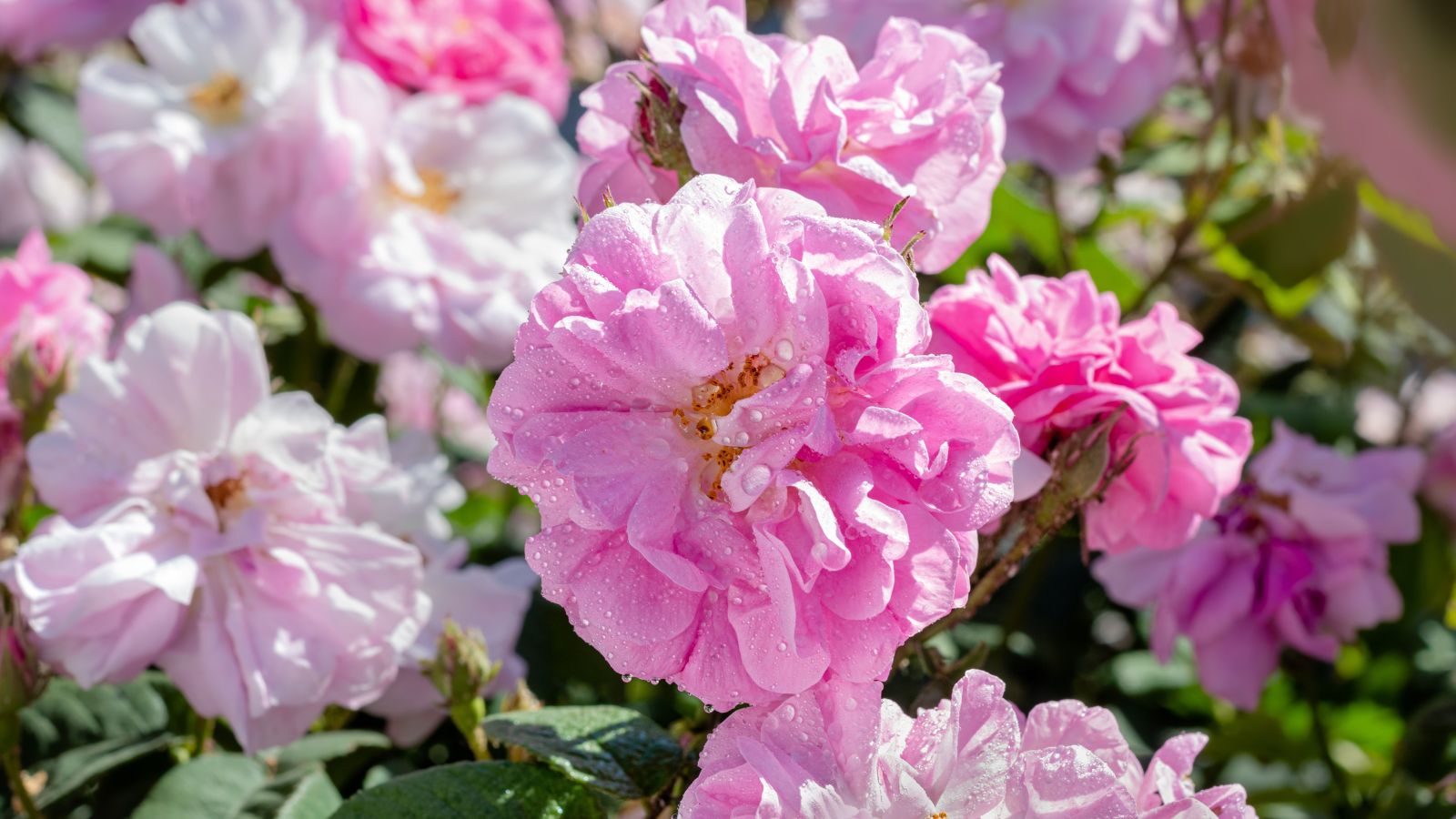
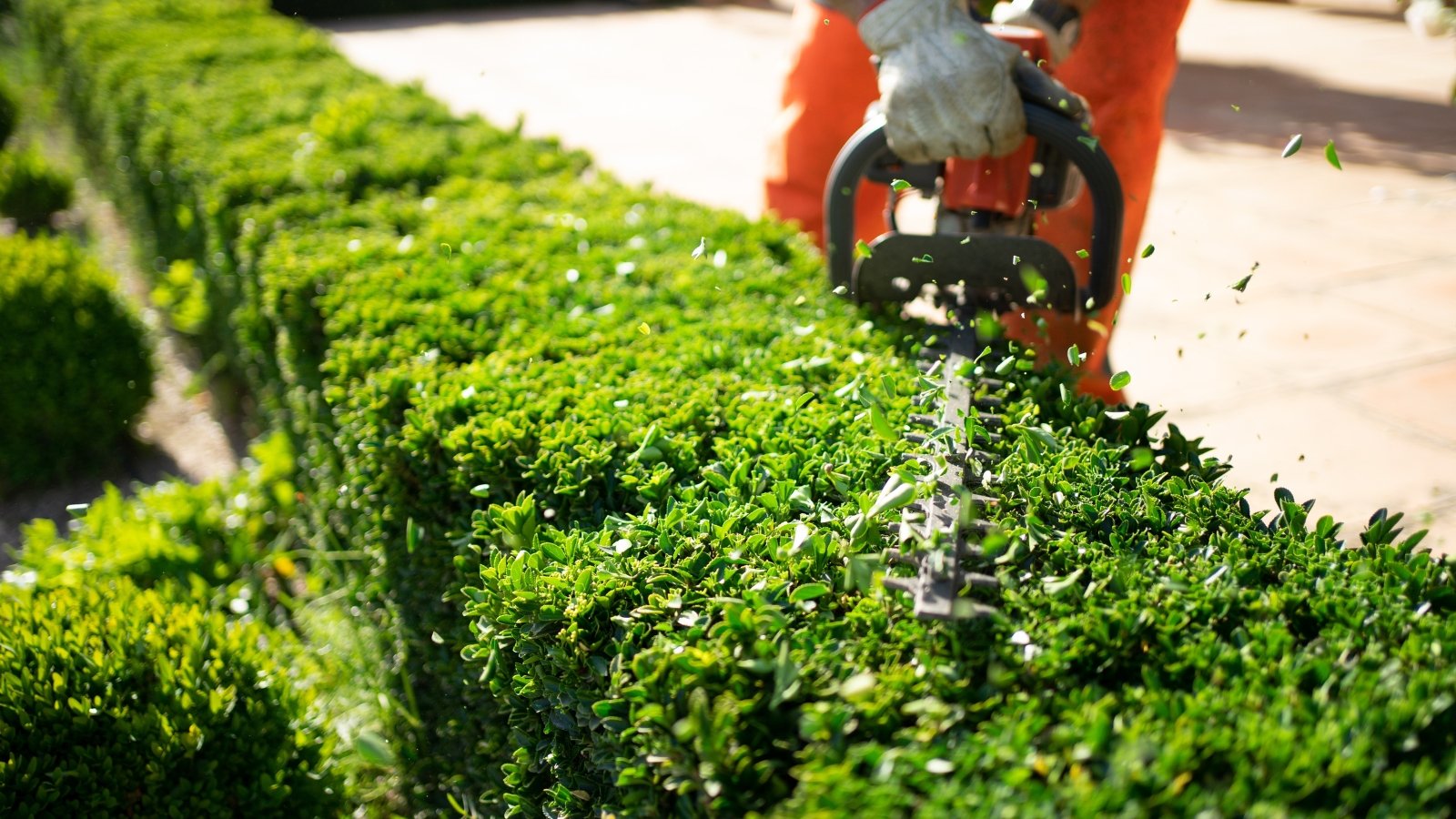
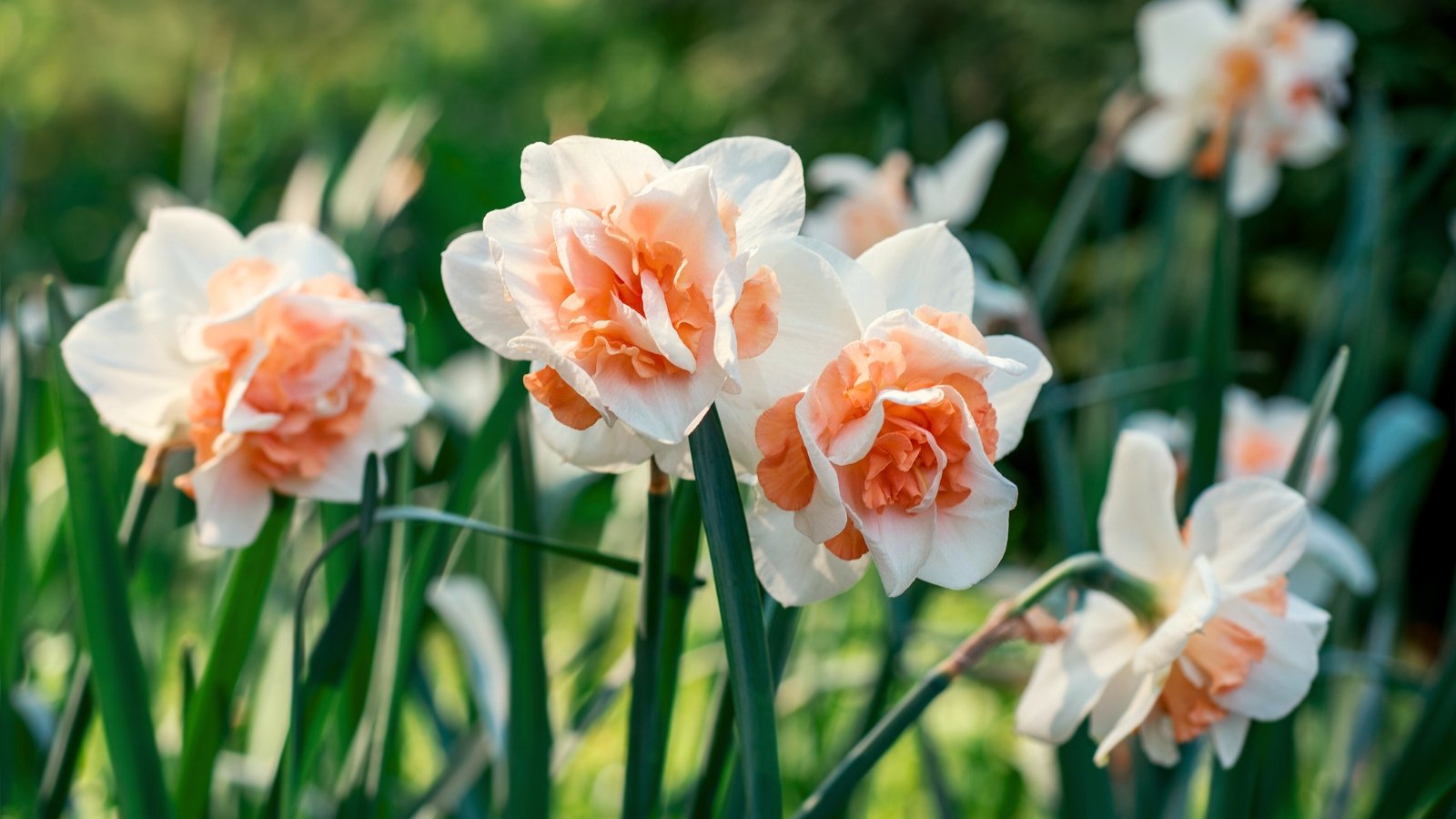
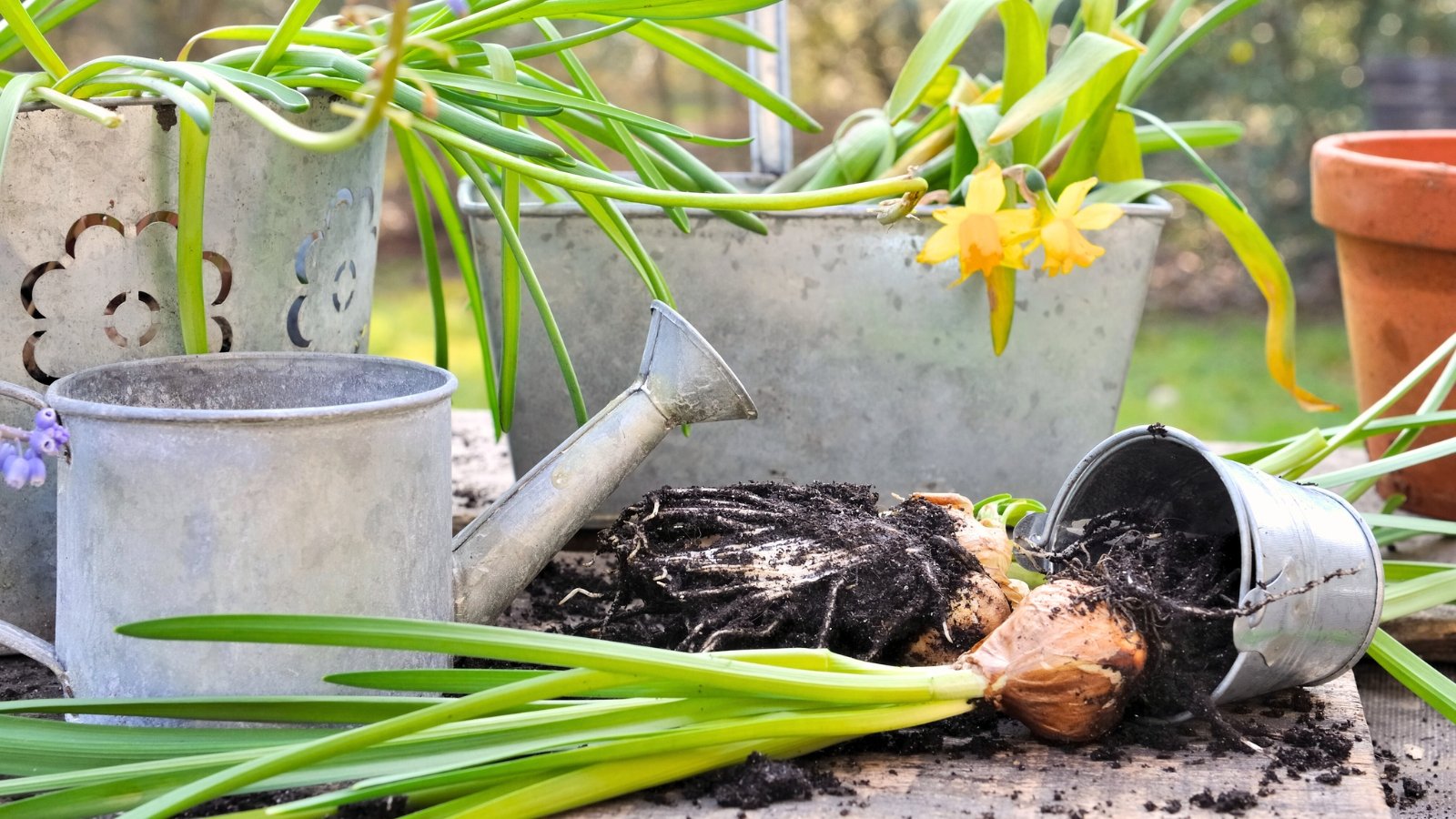
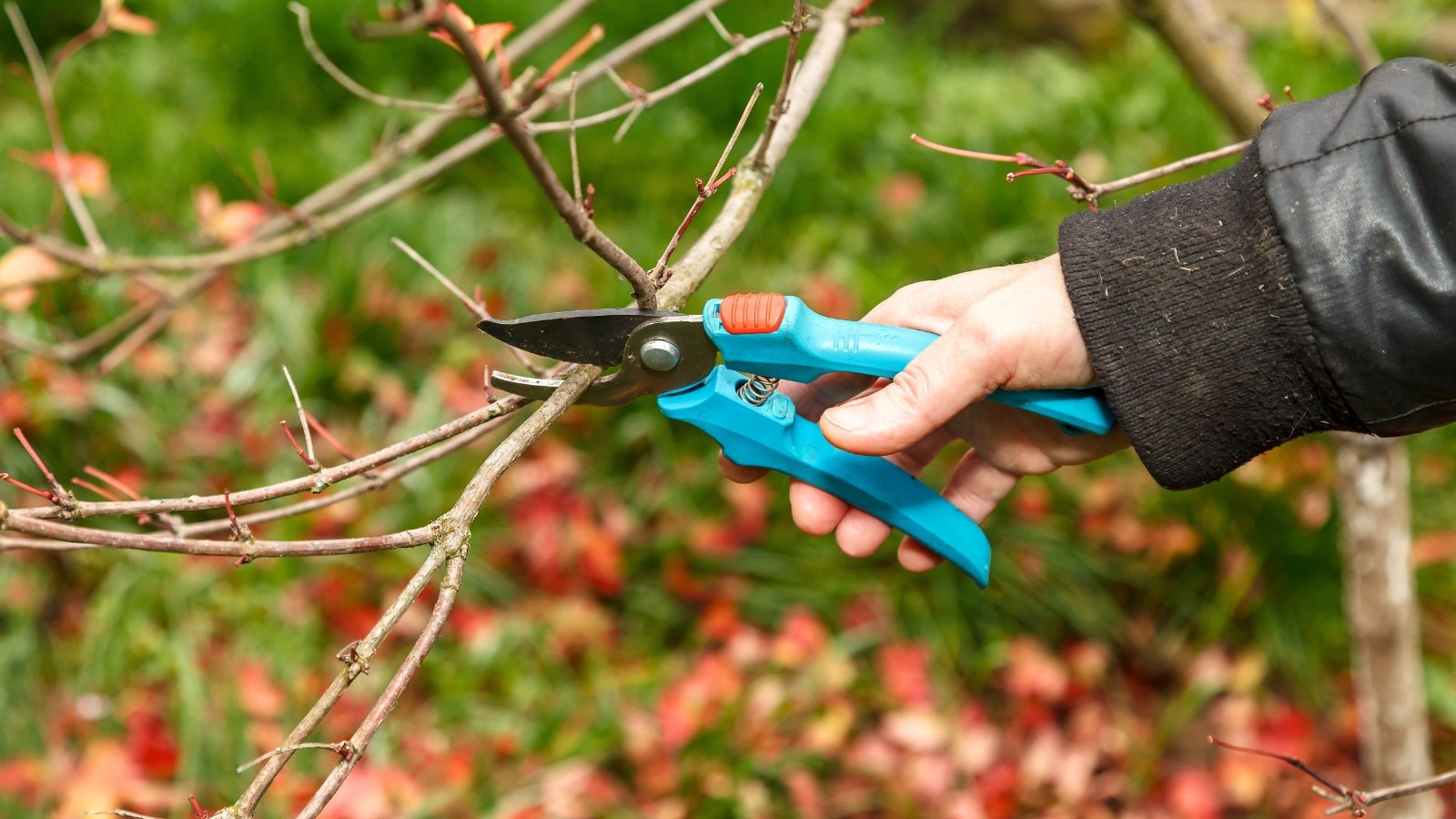
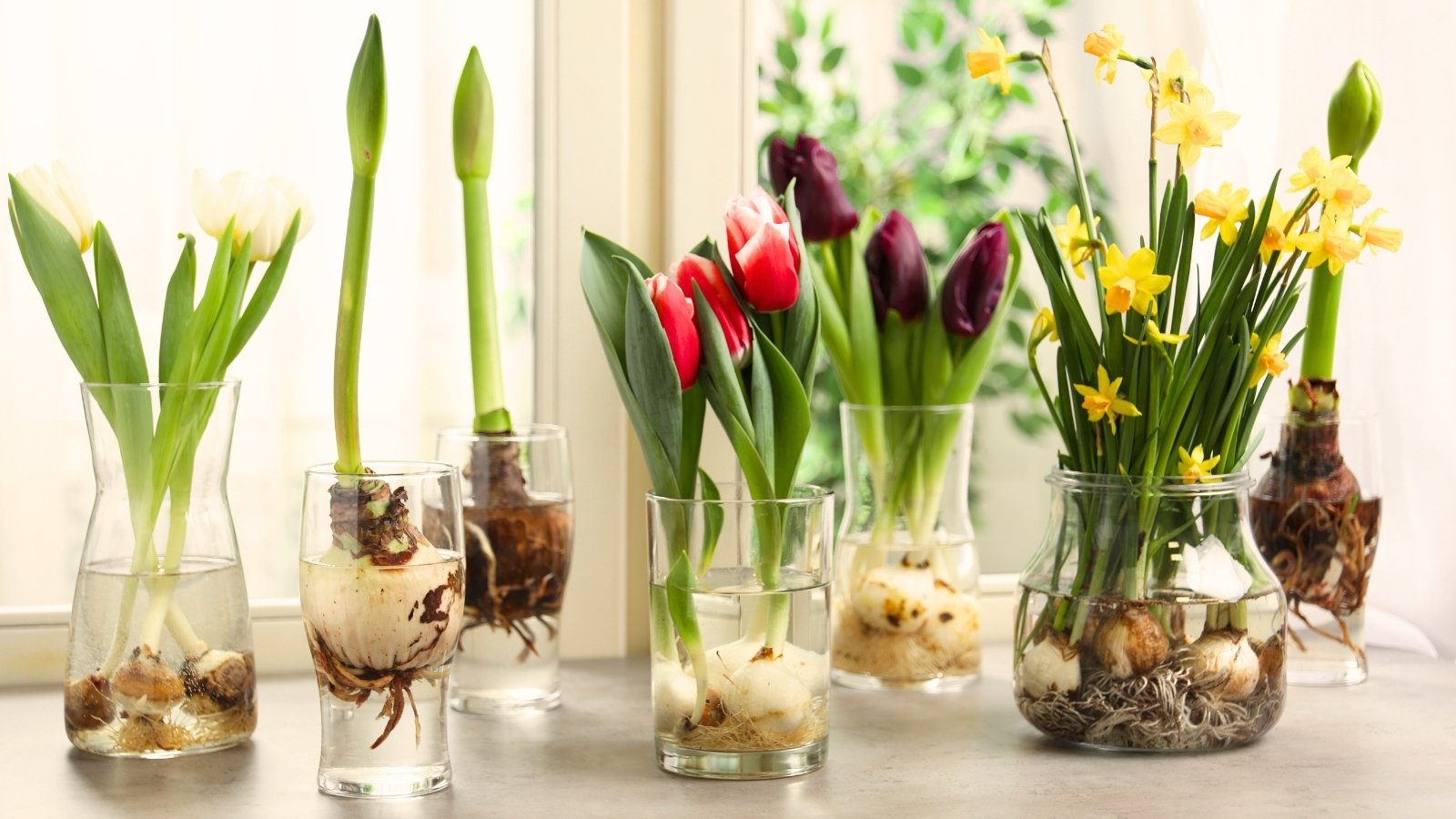
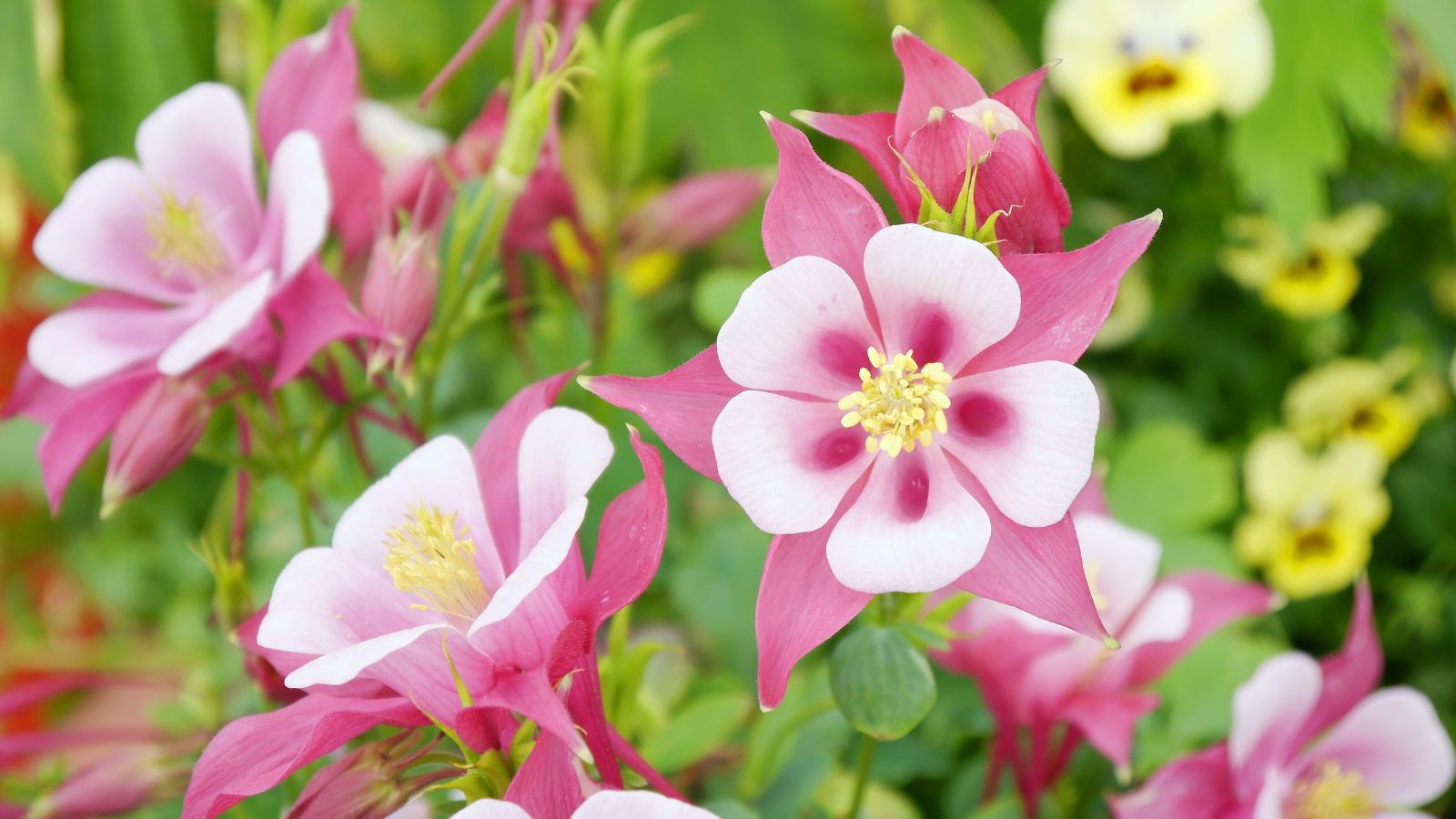
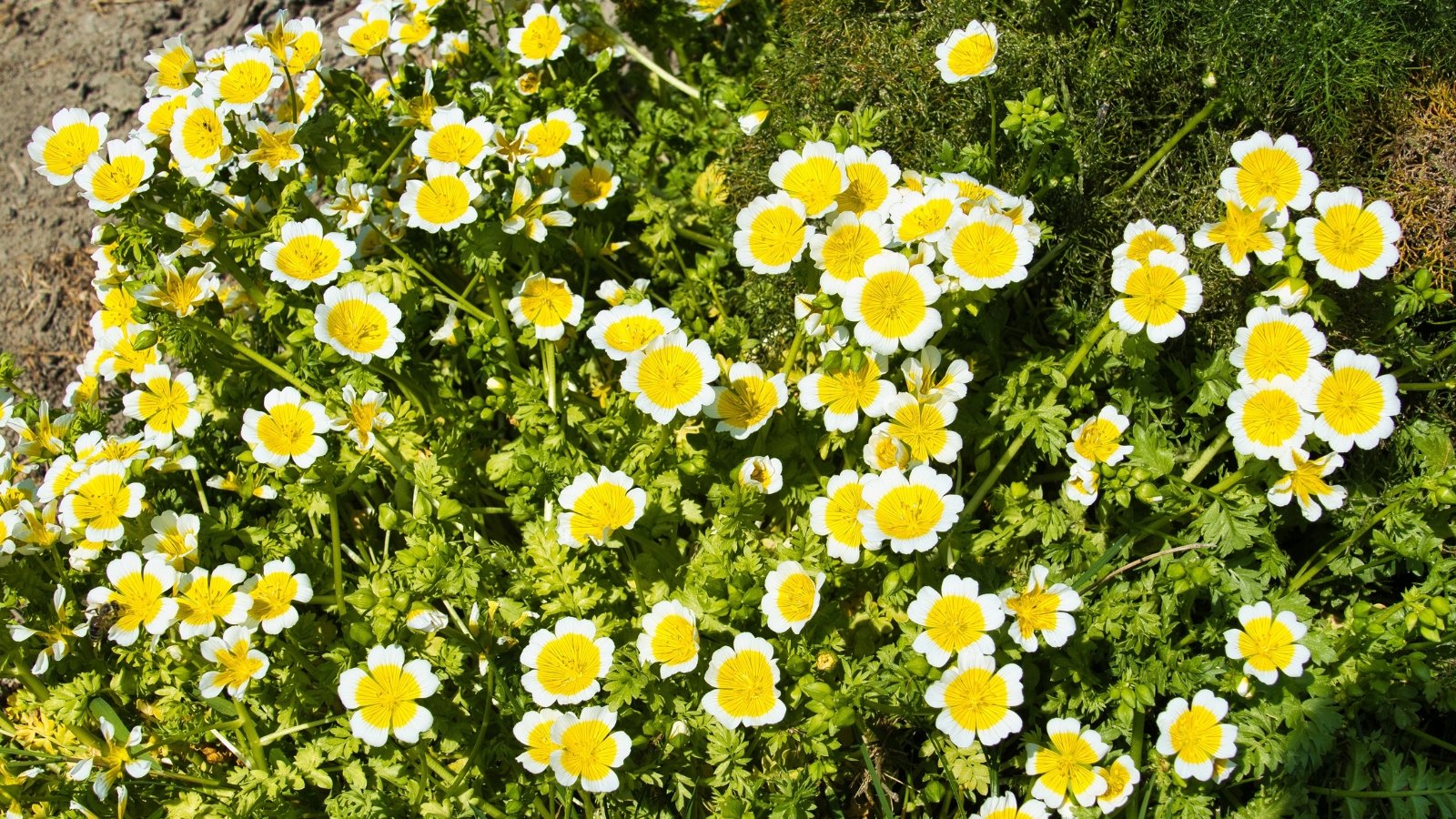


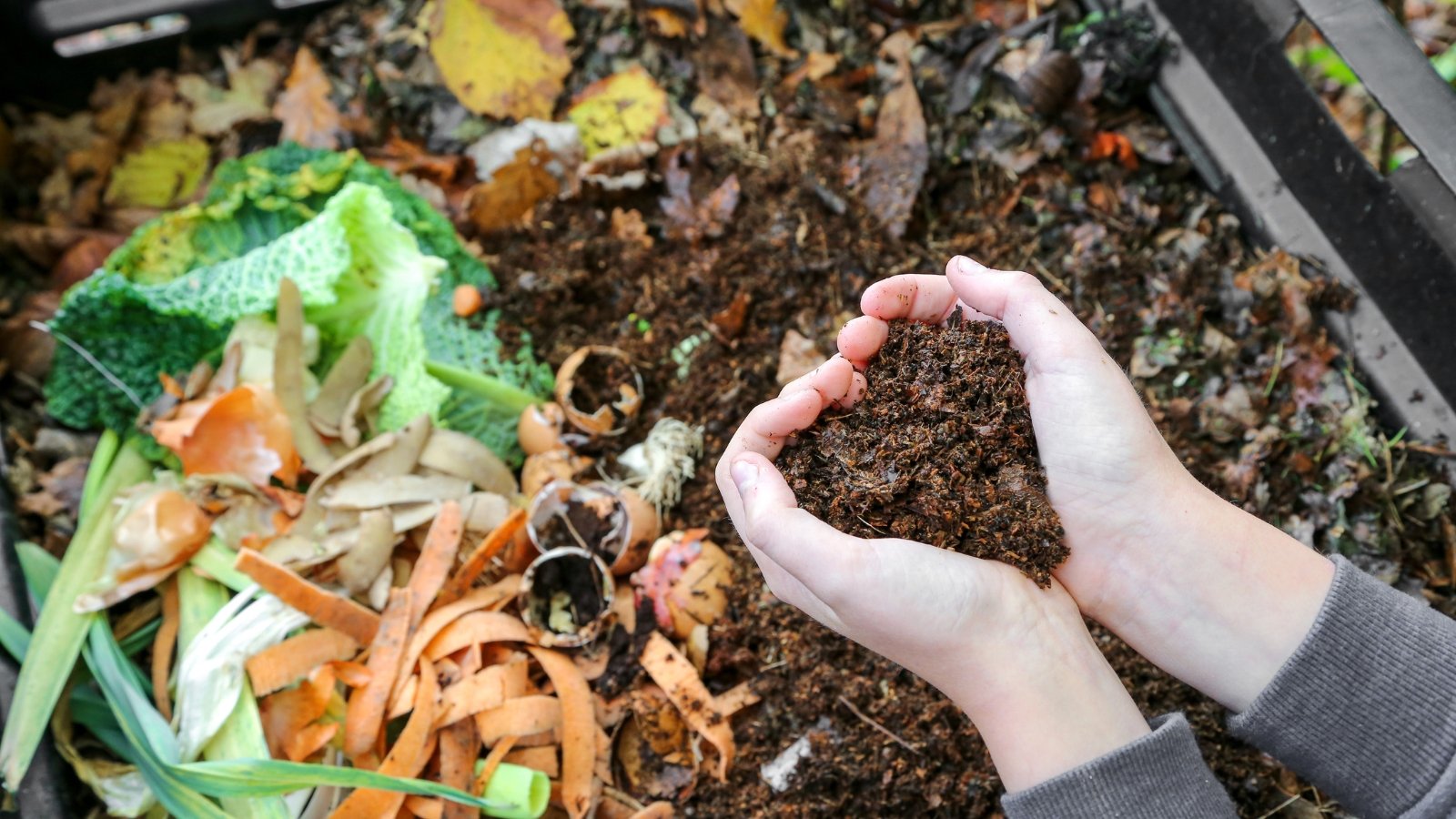
Leave a Reply